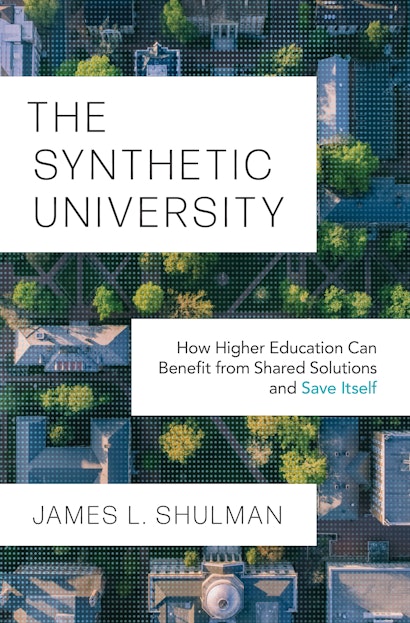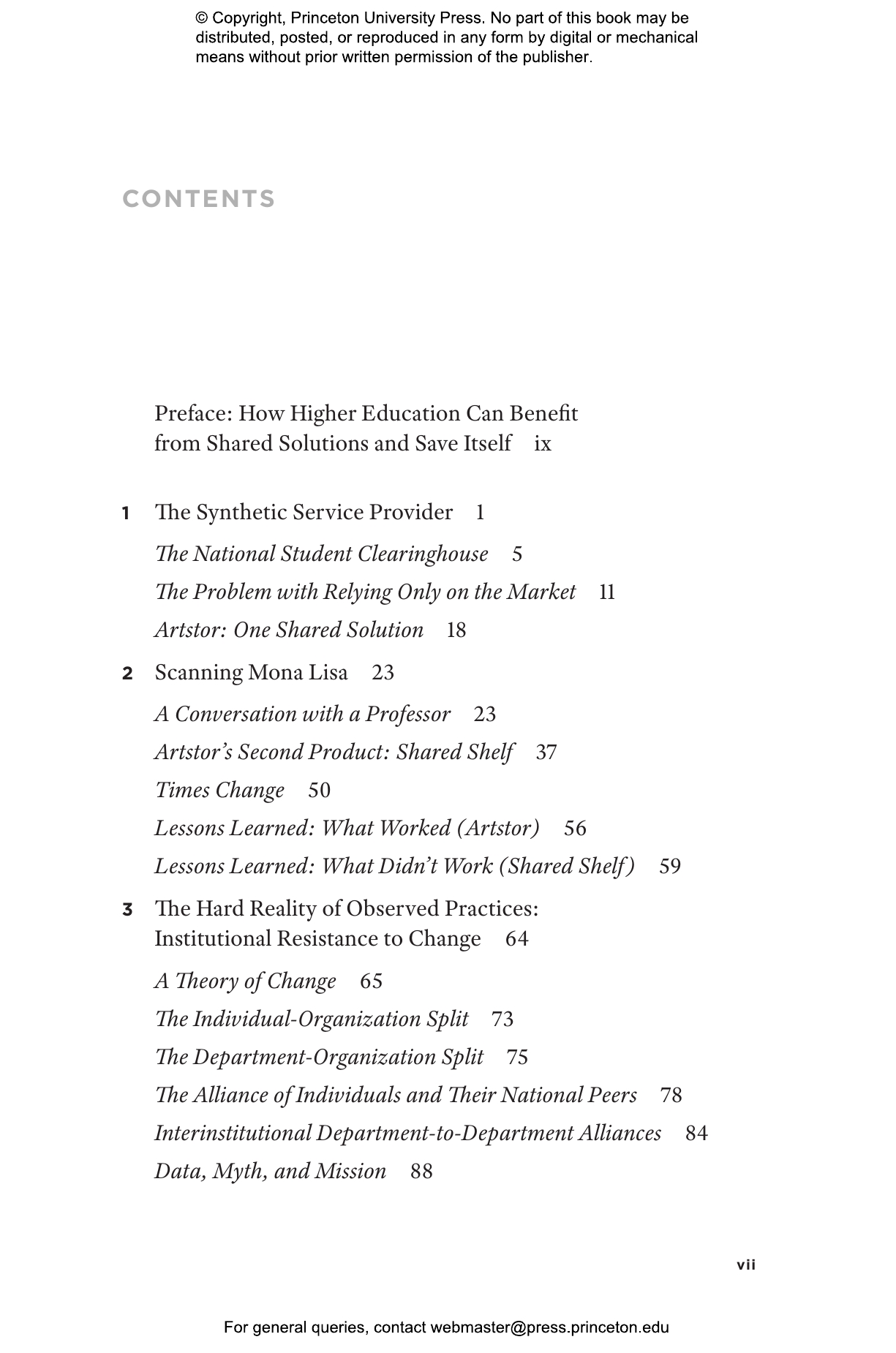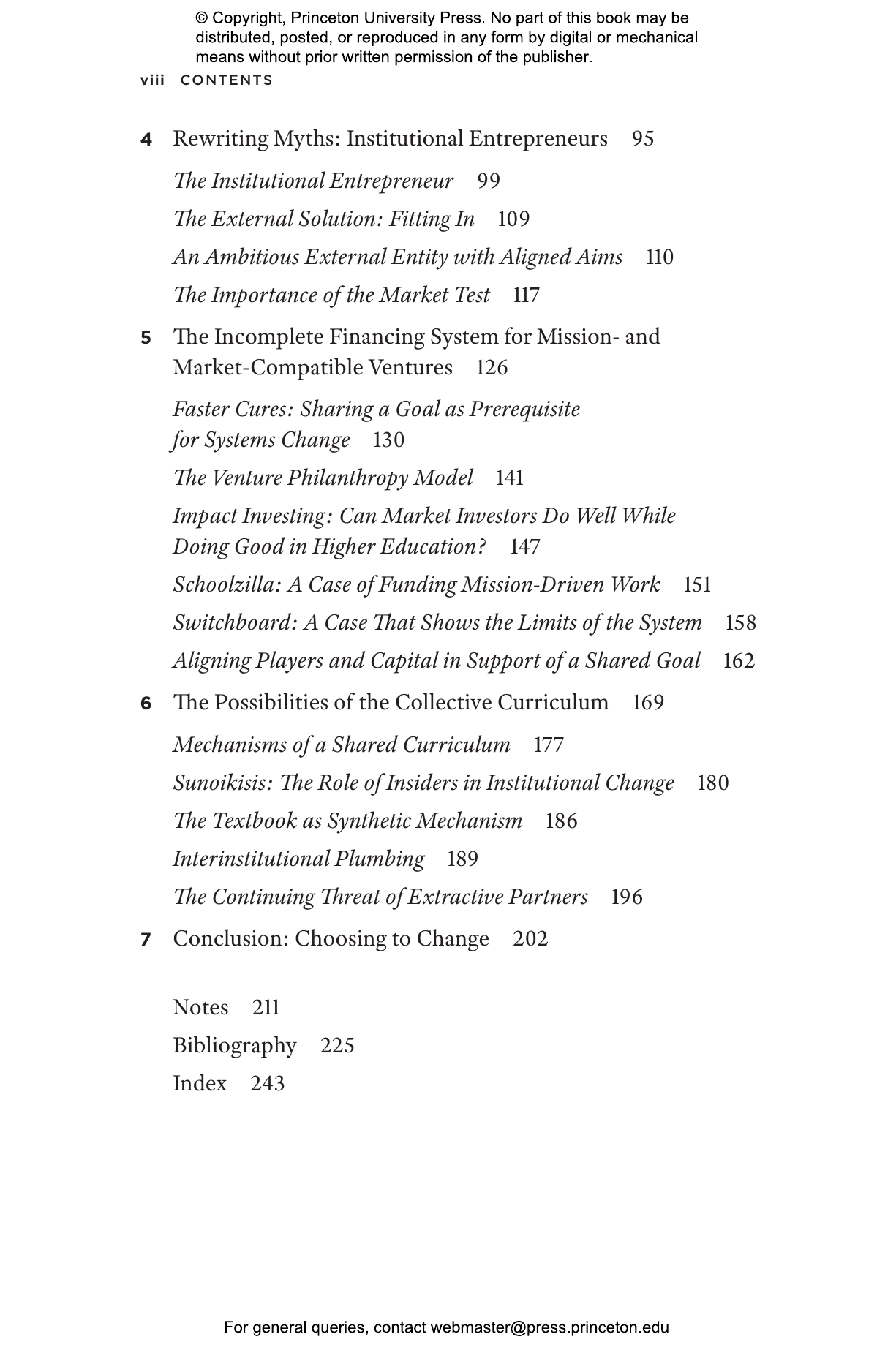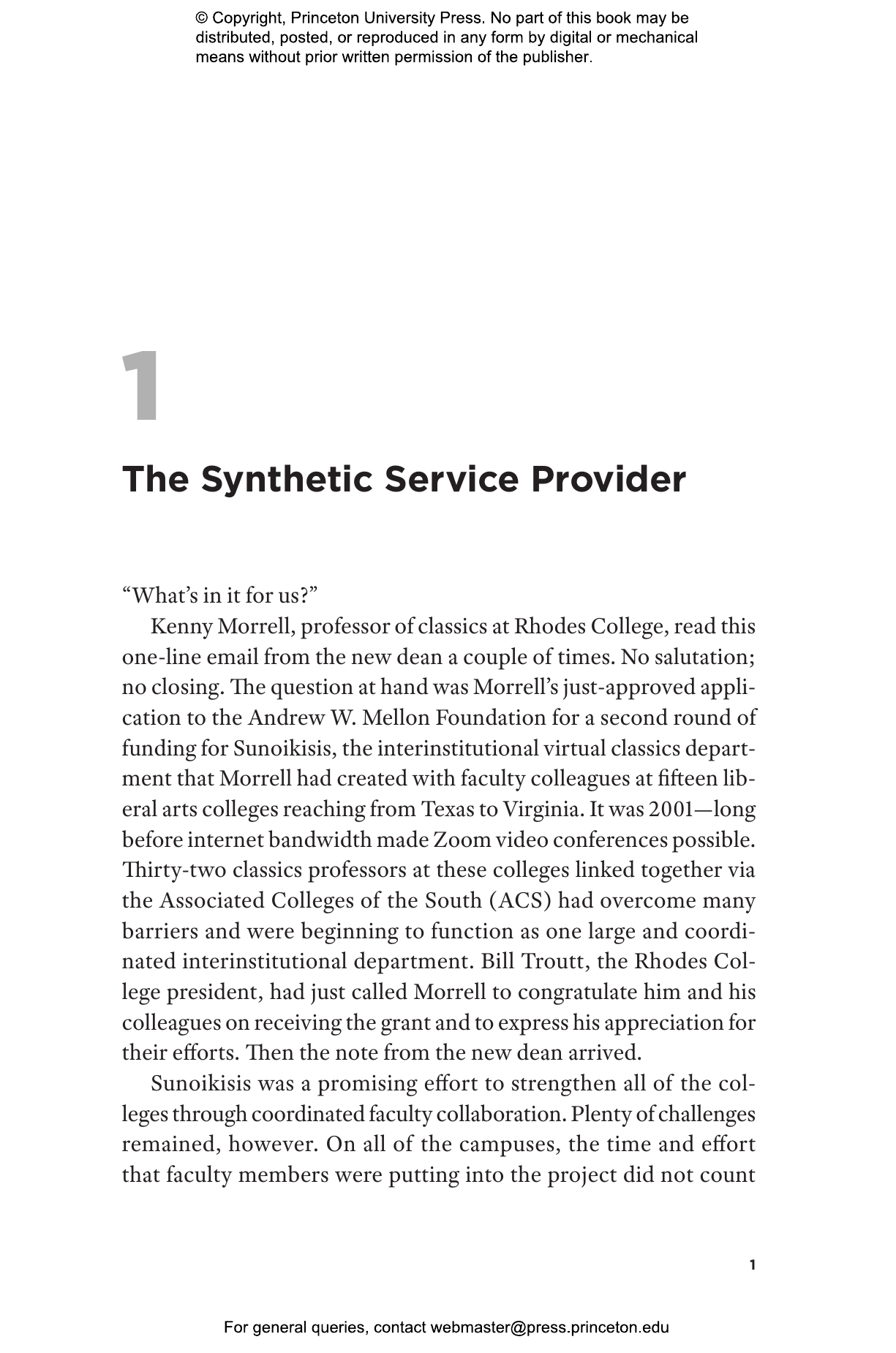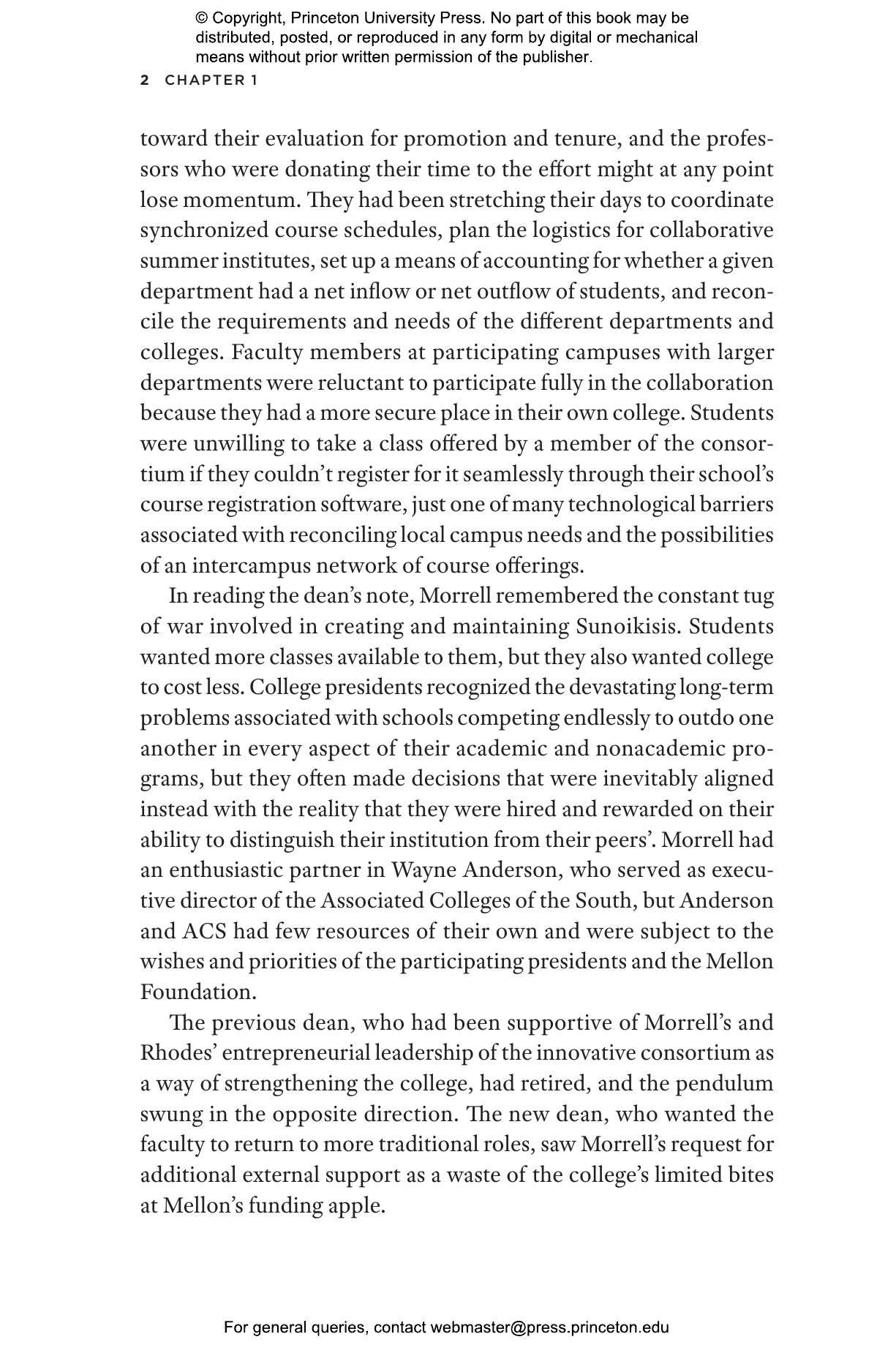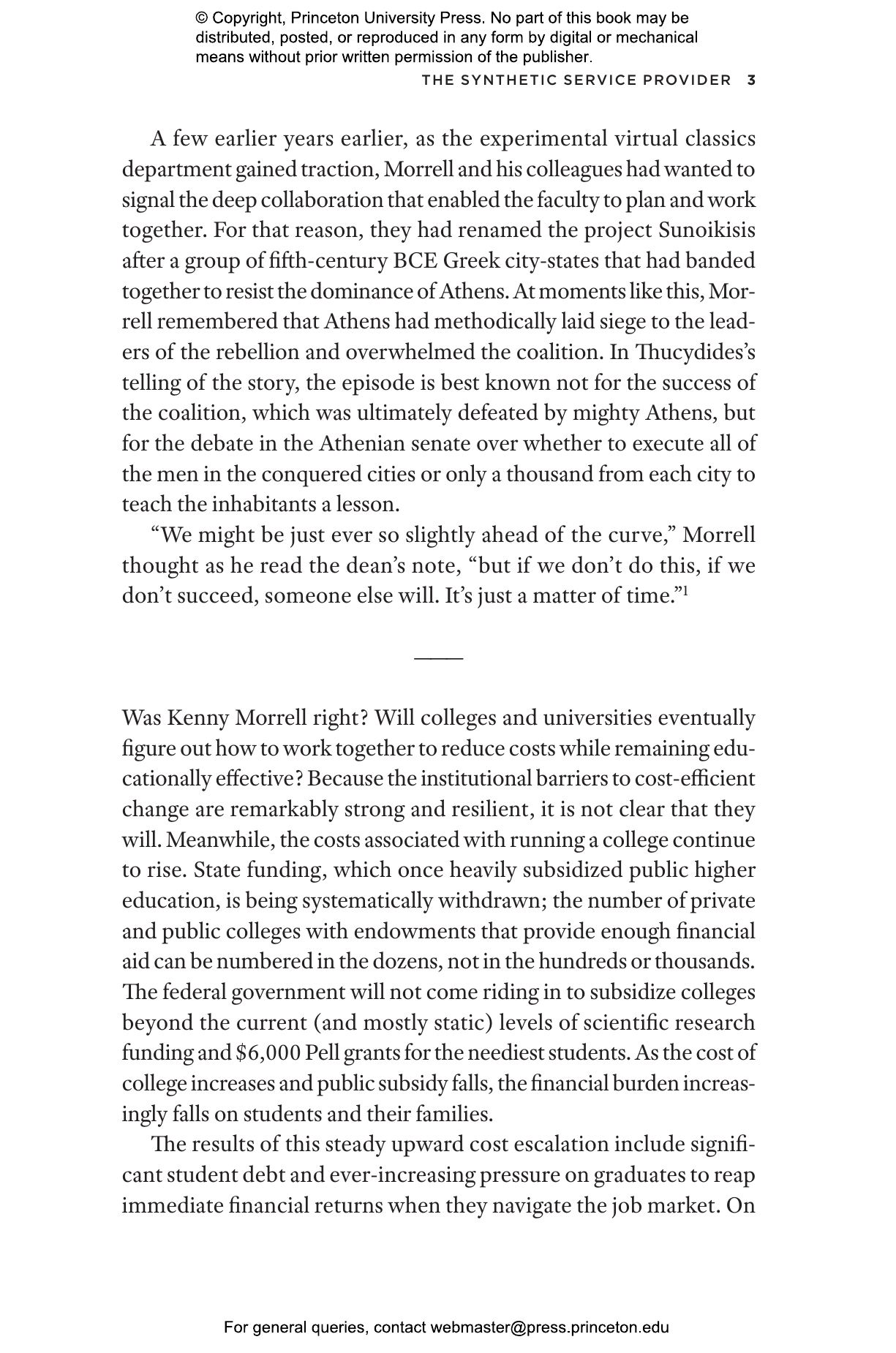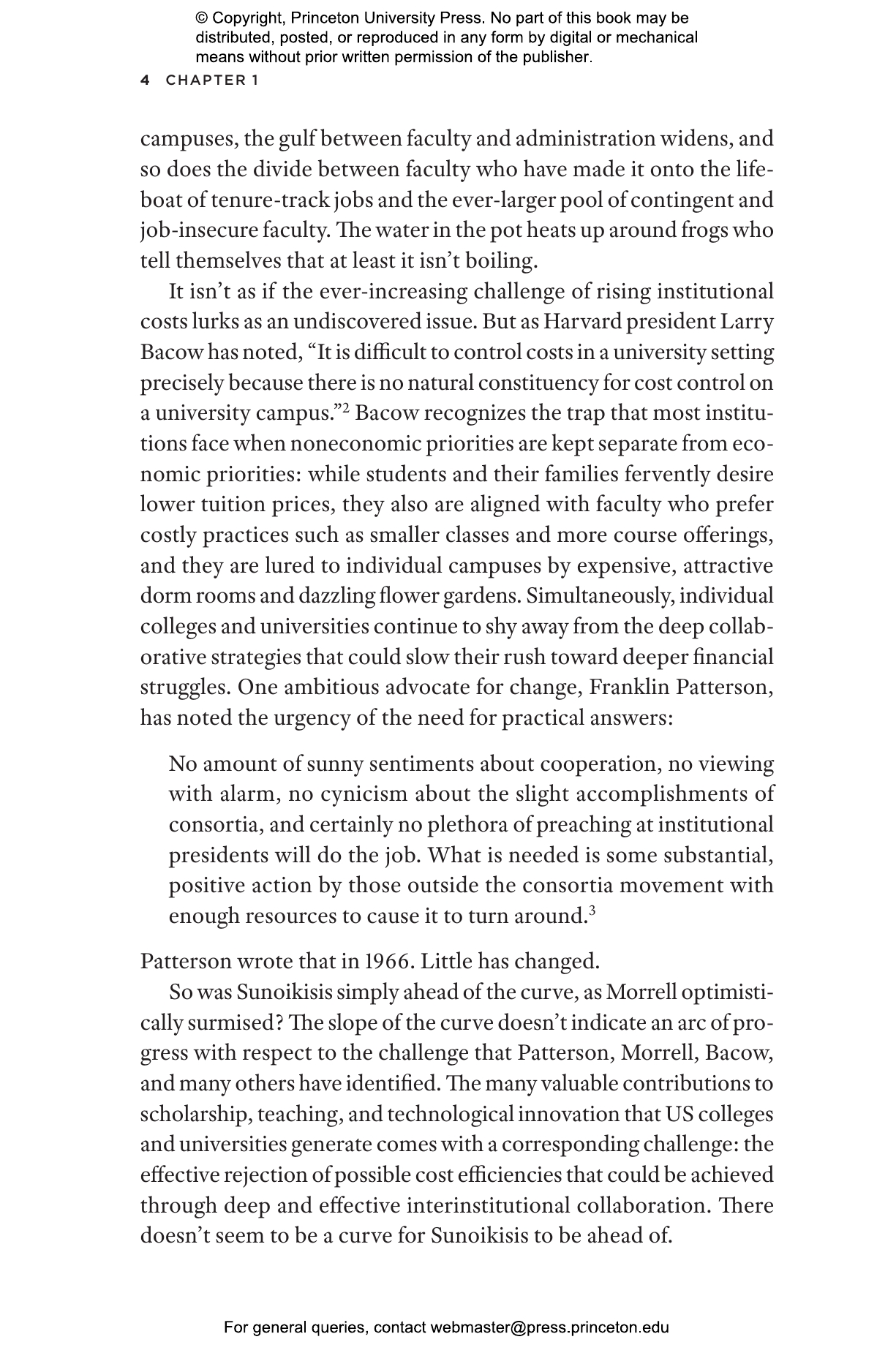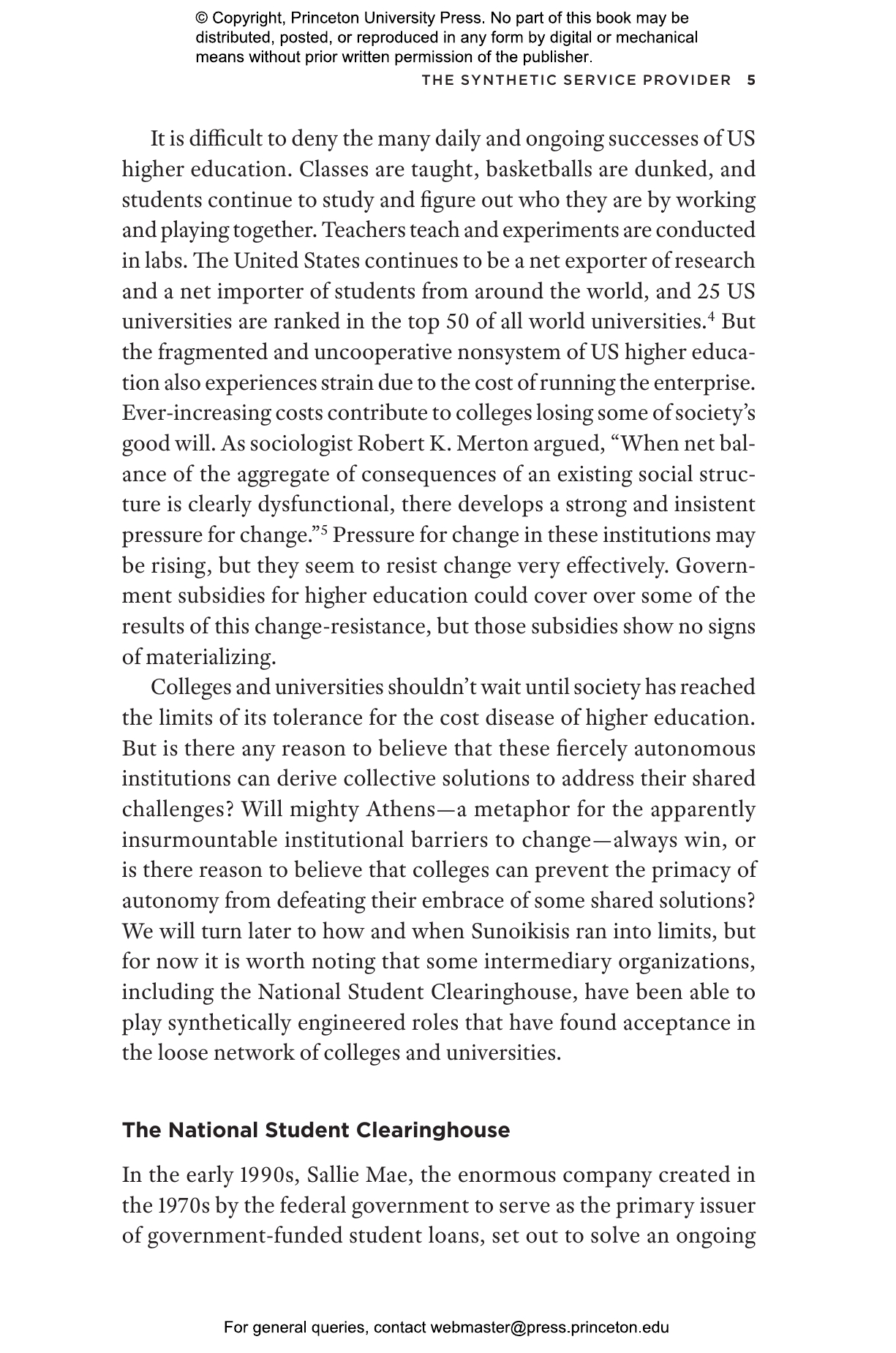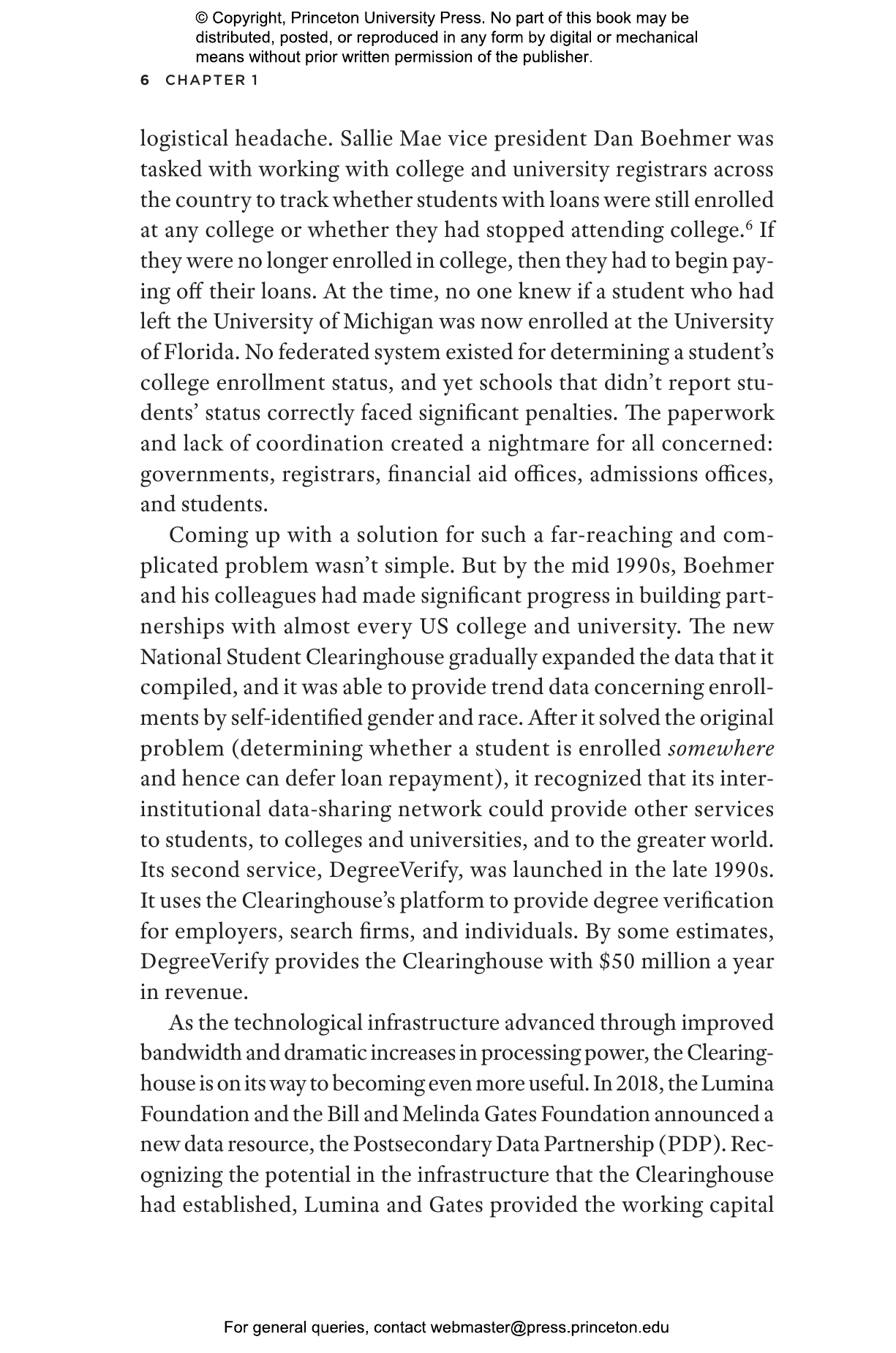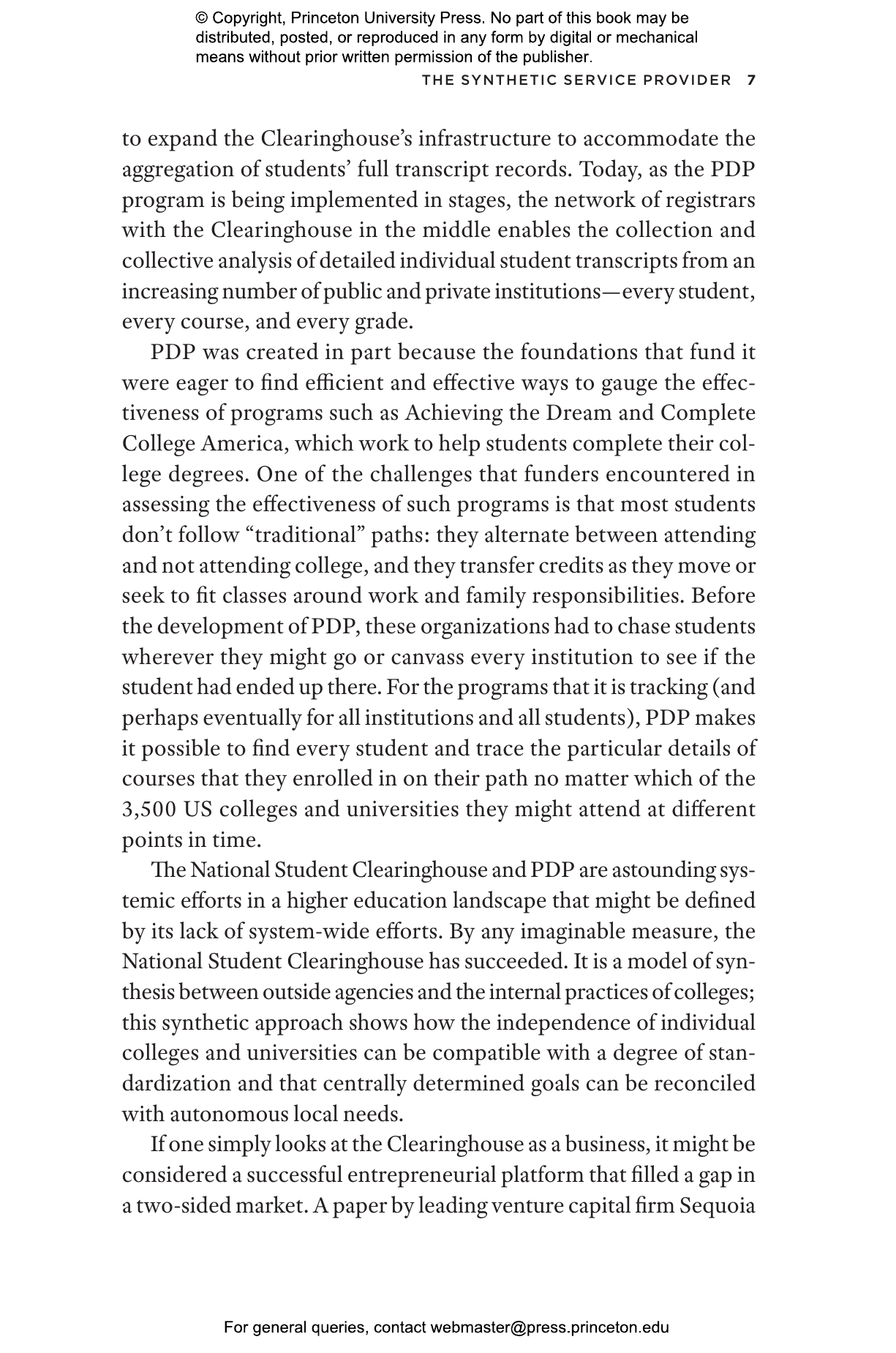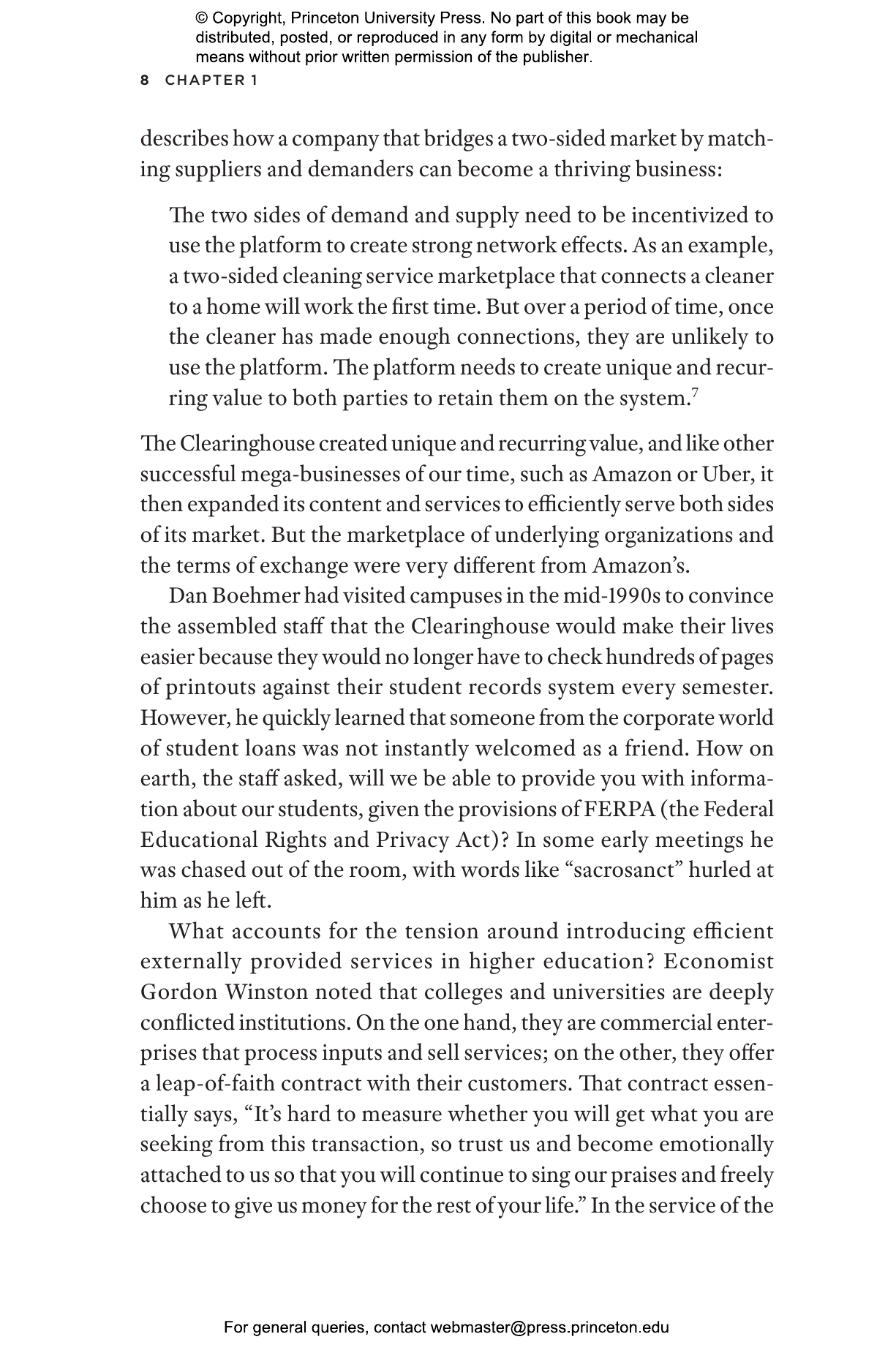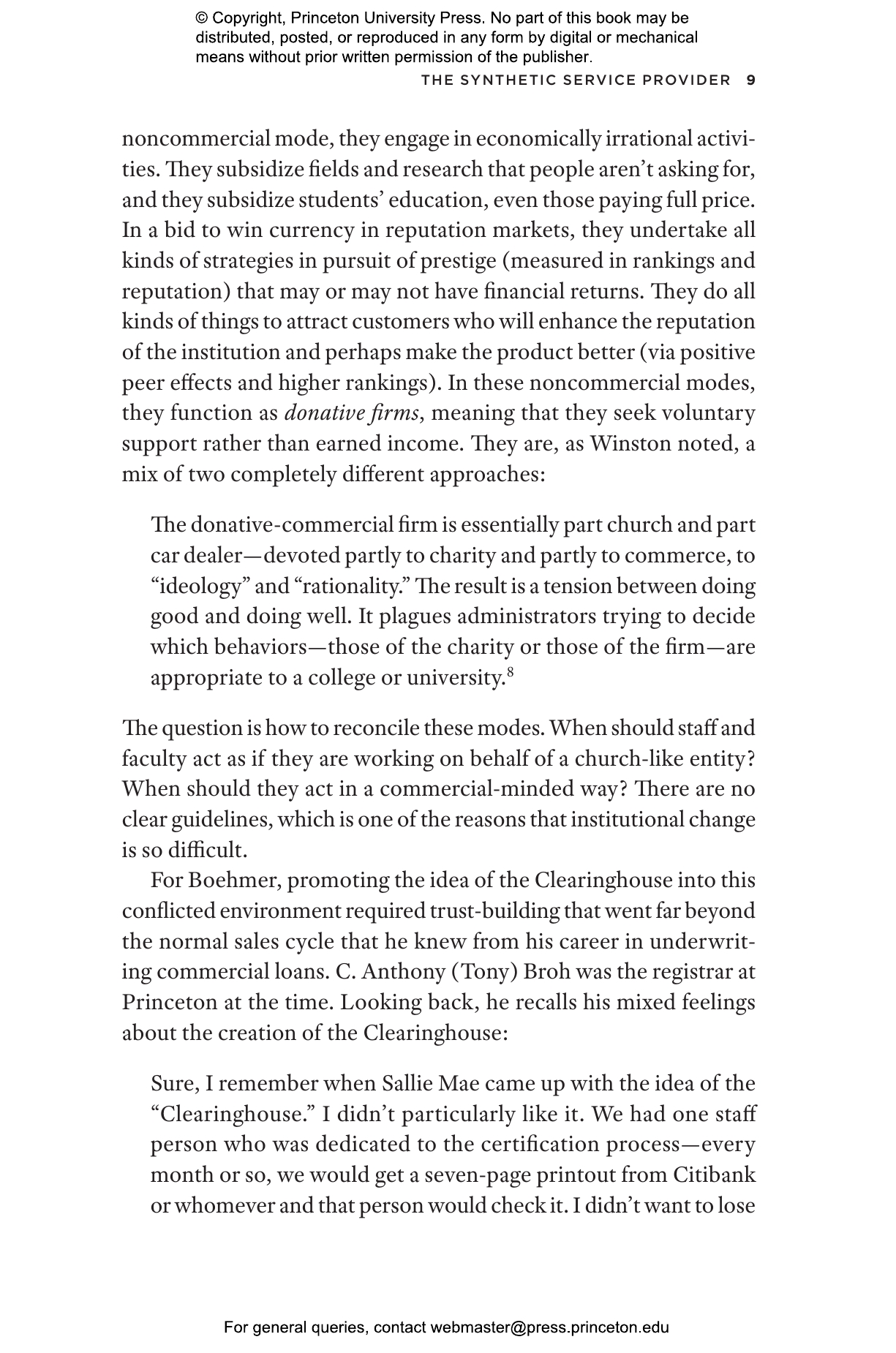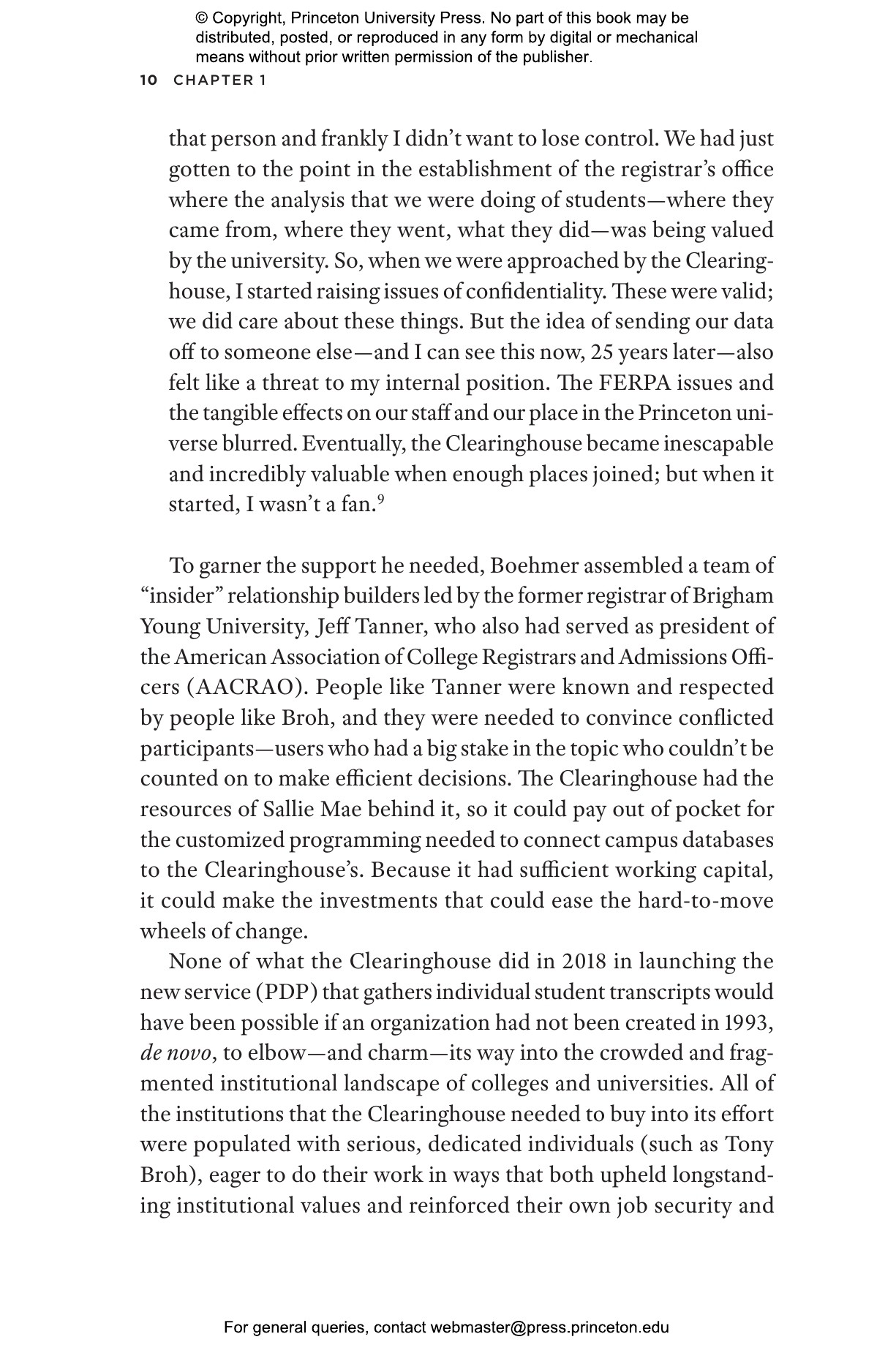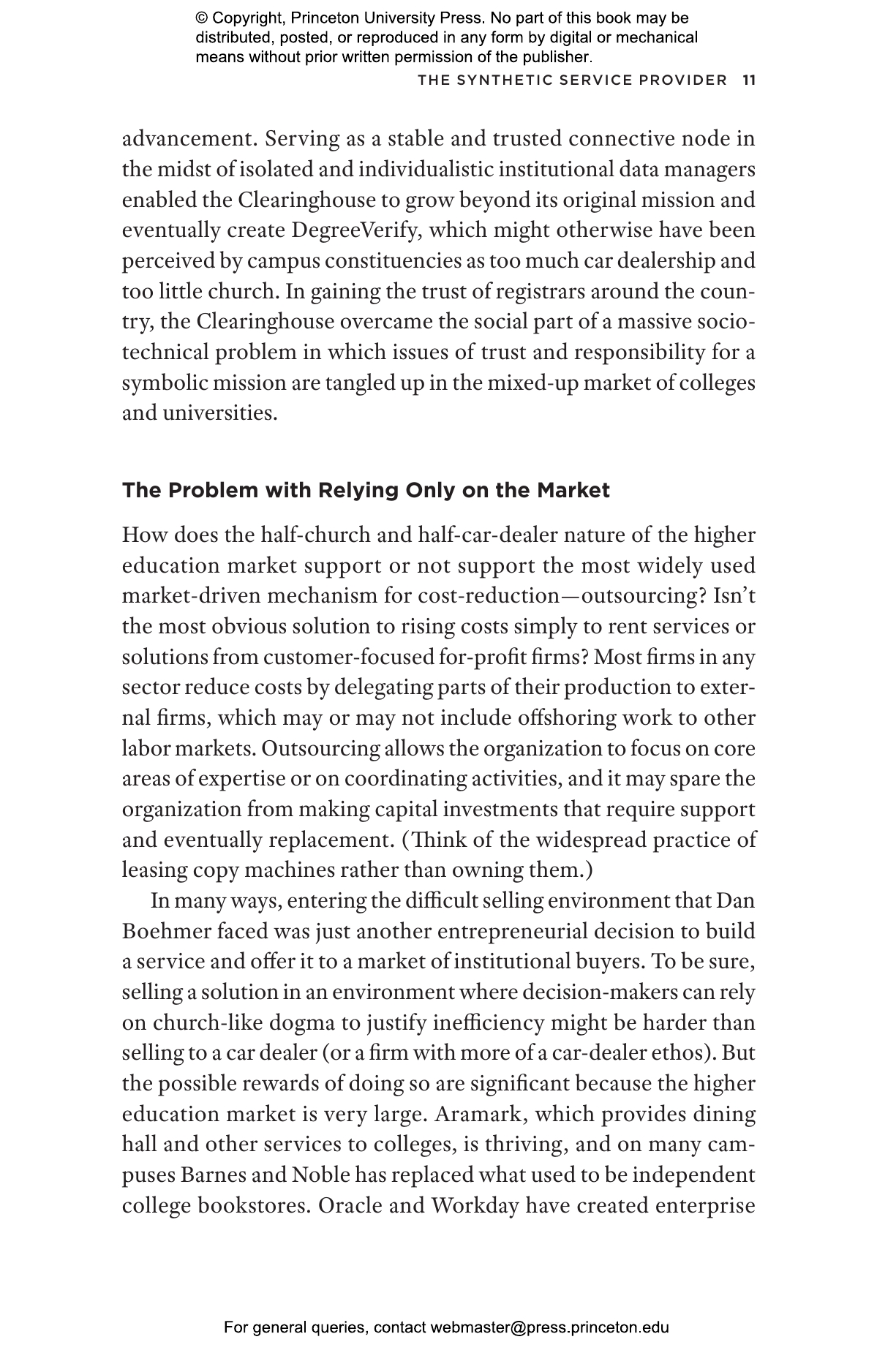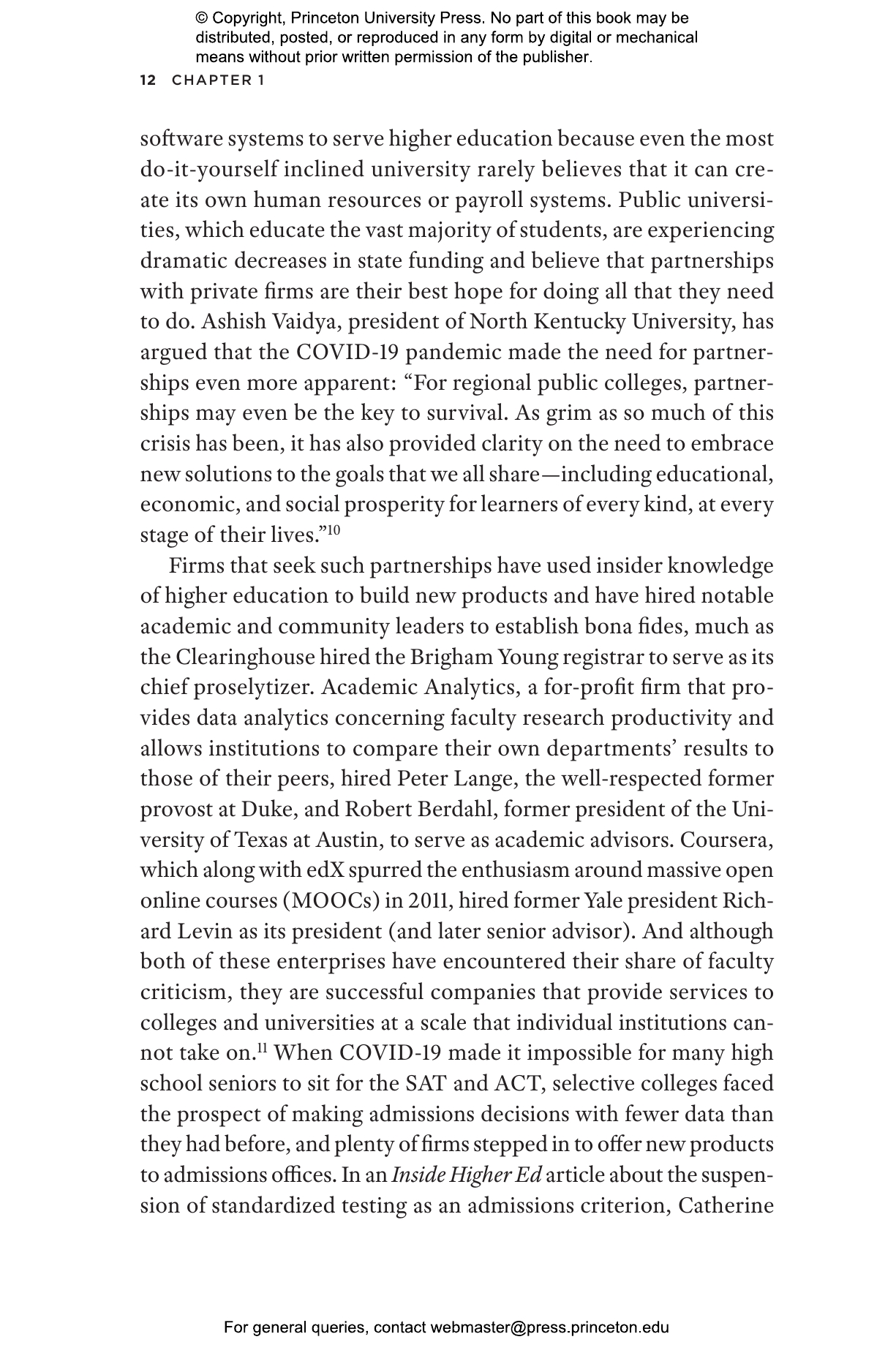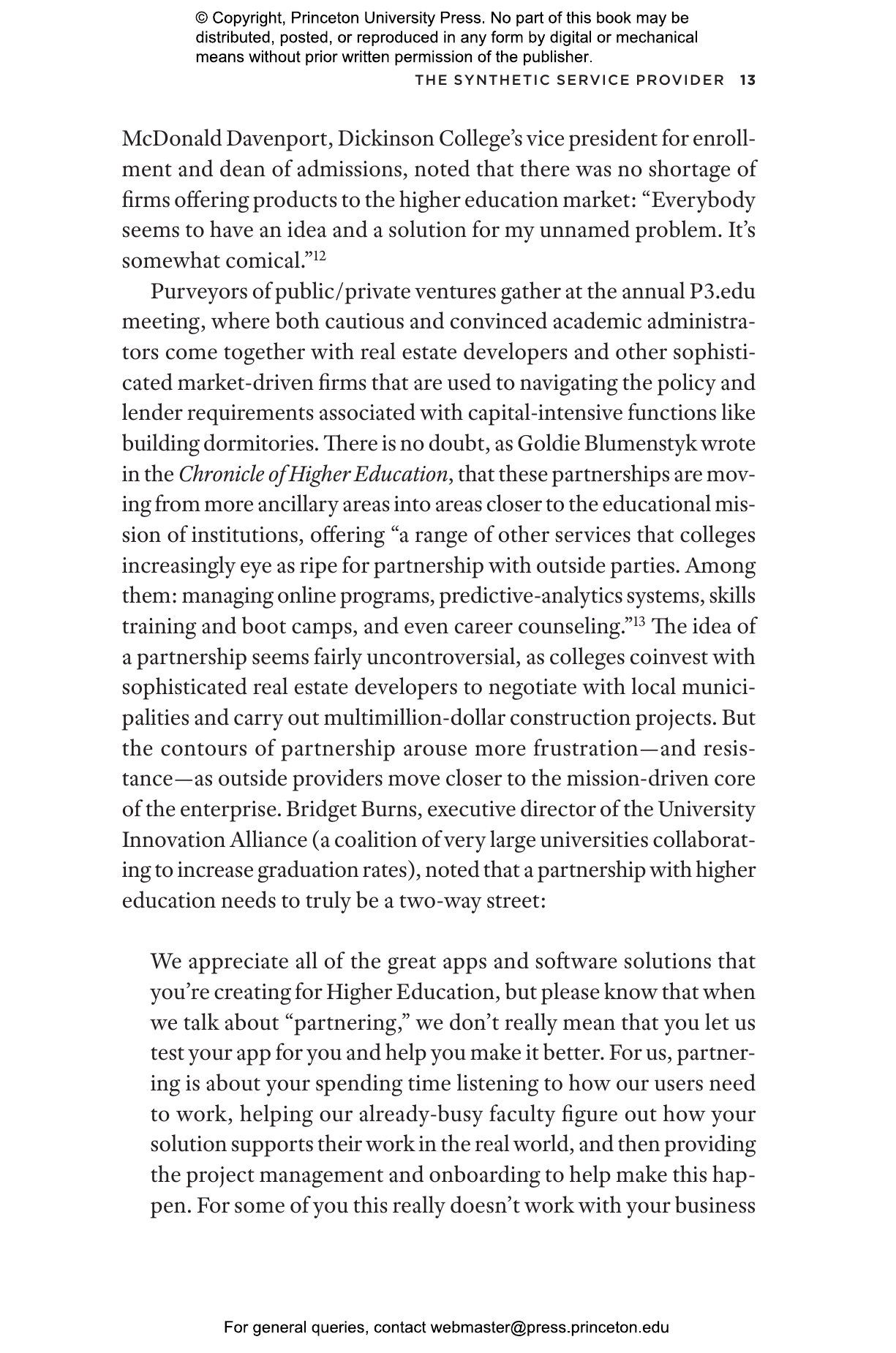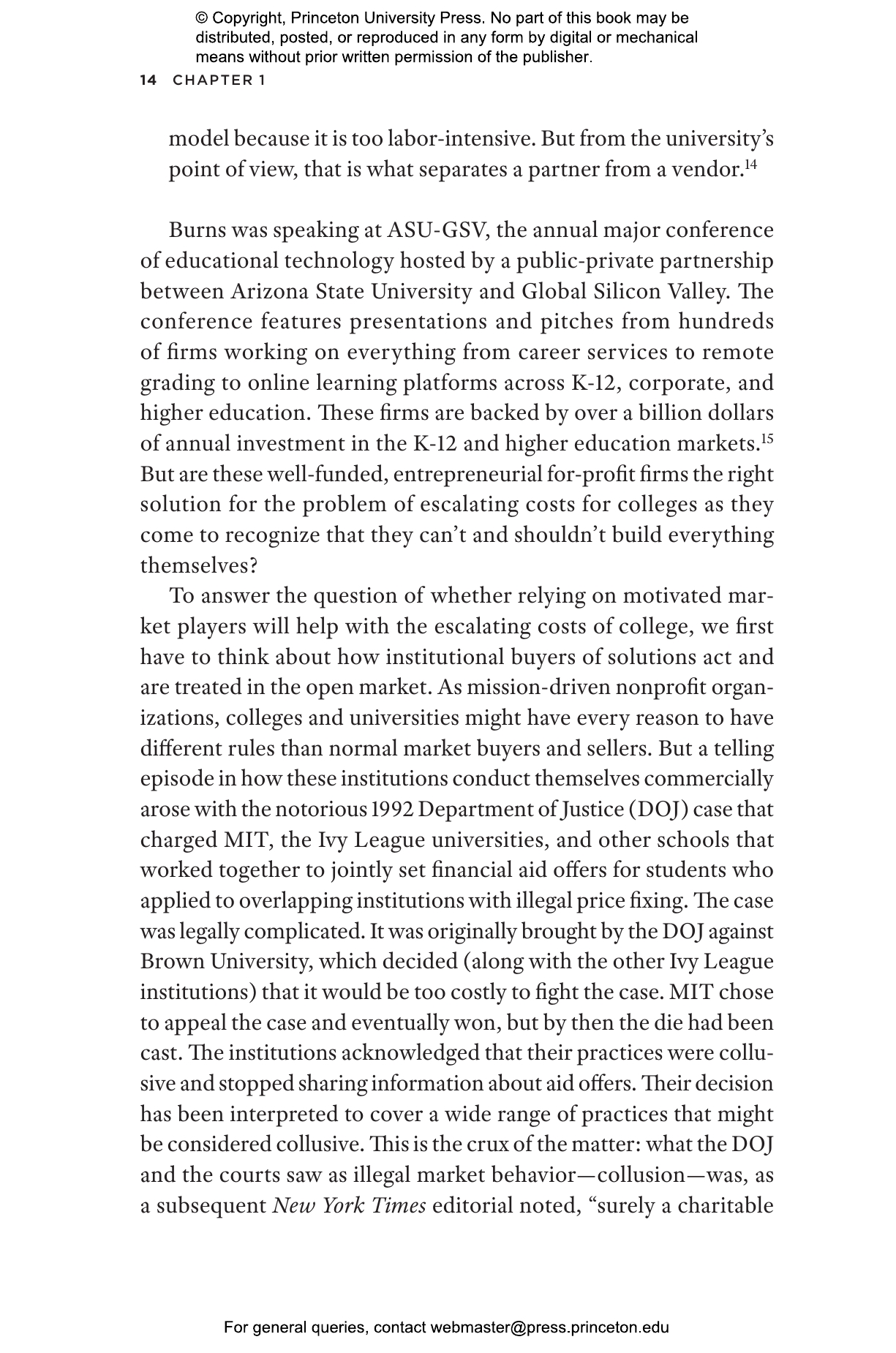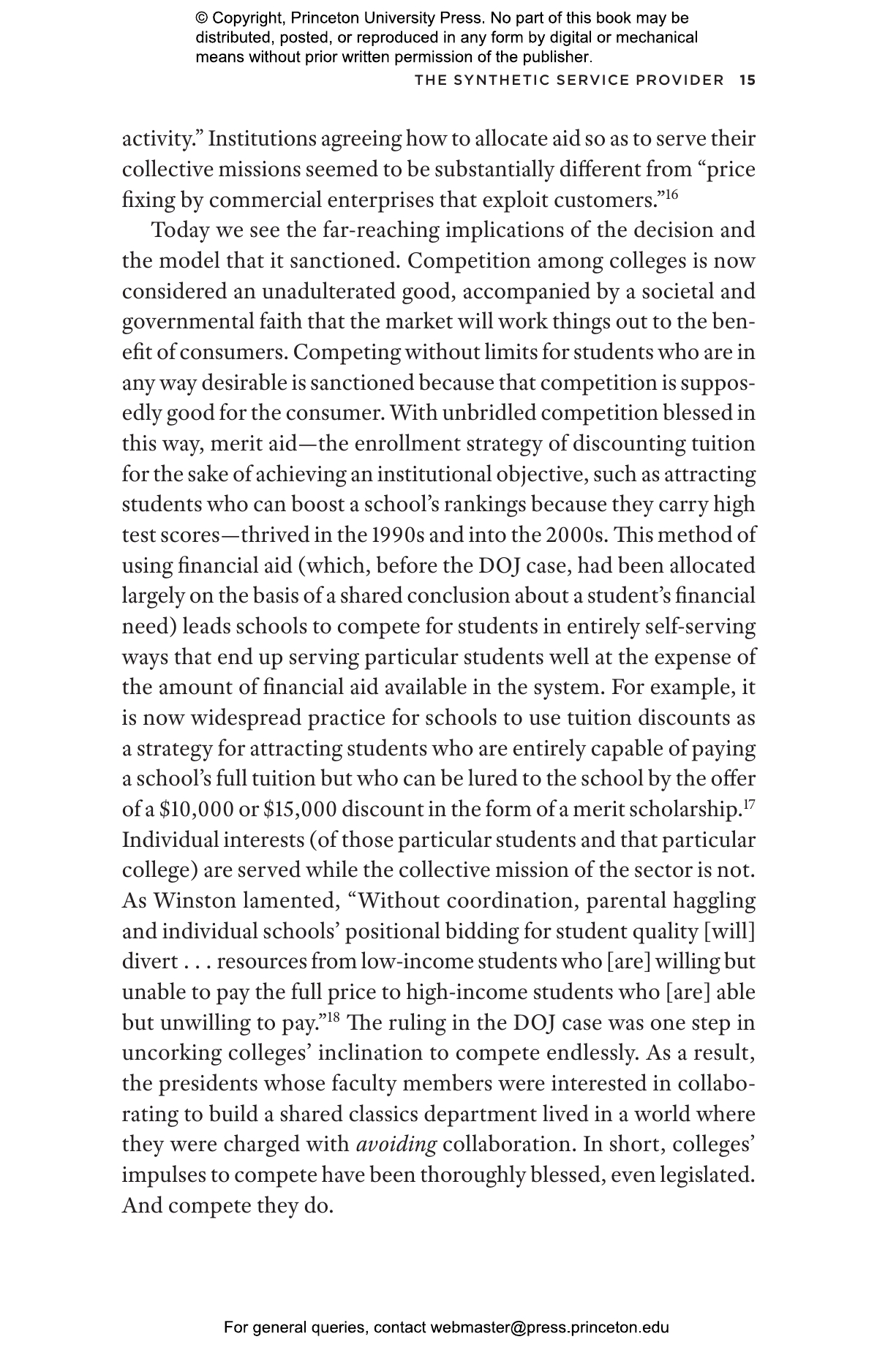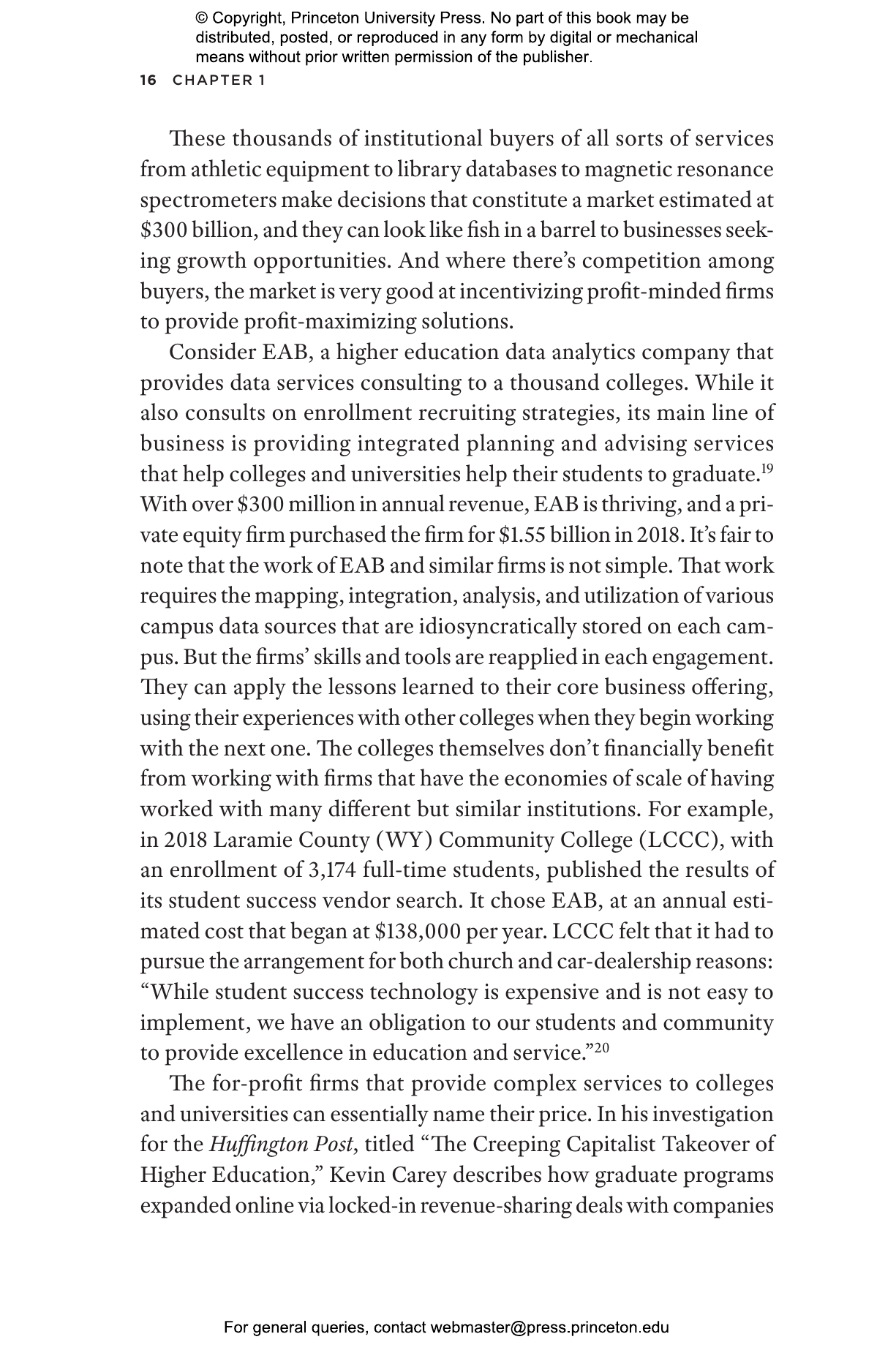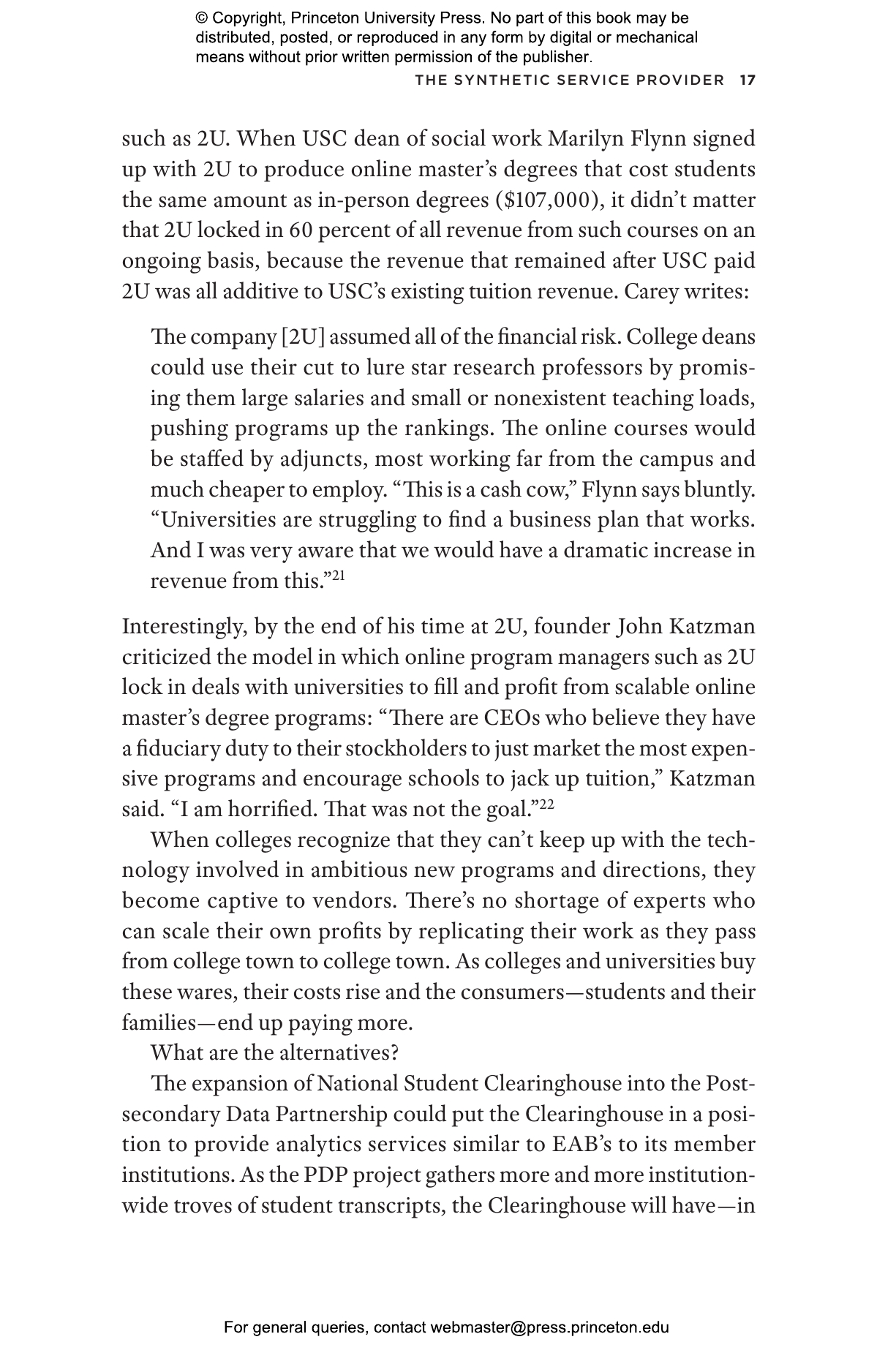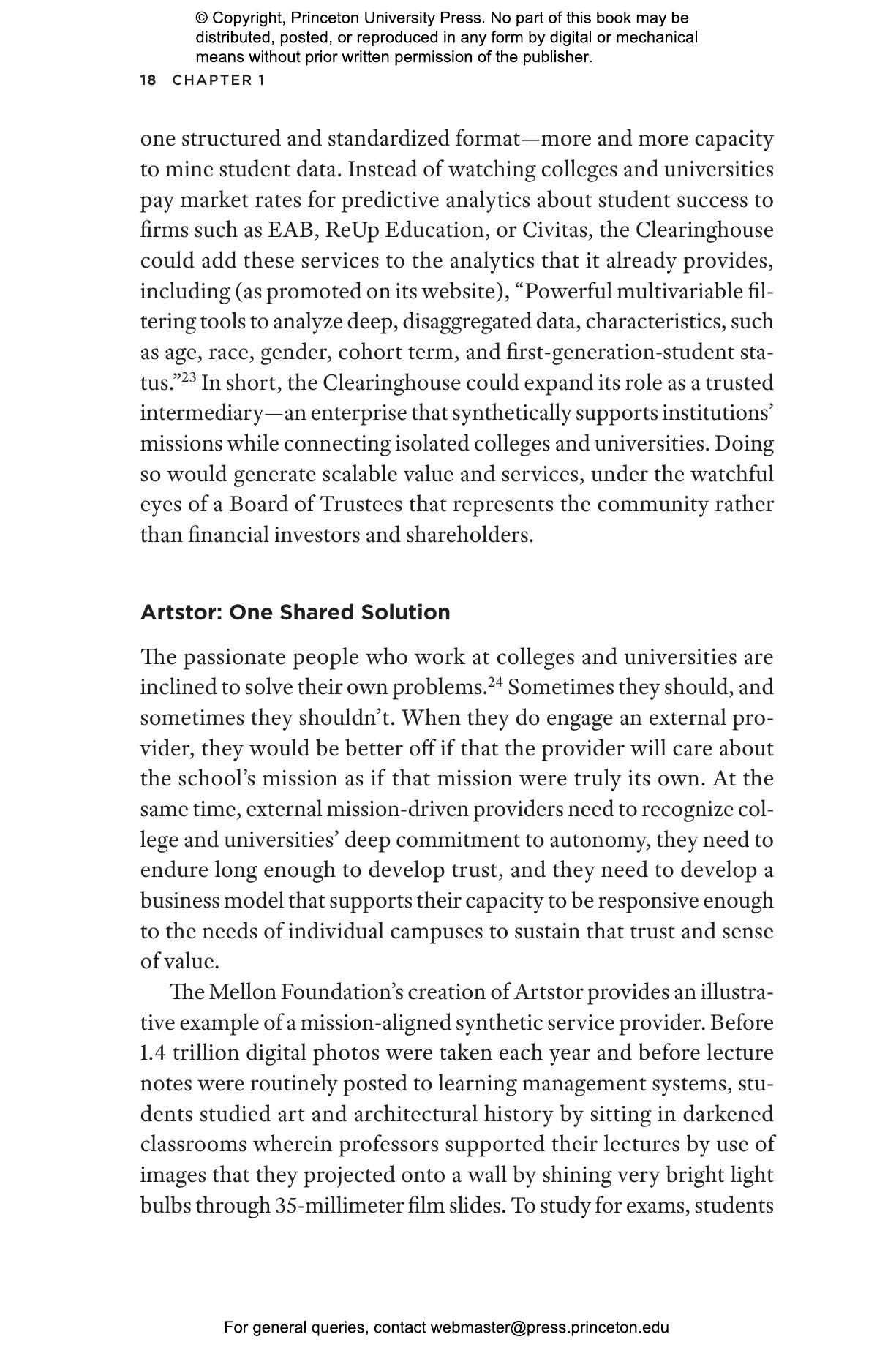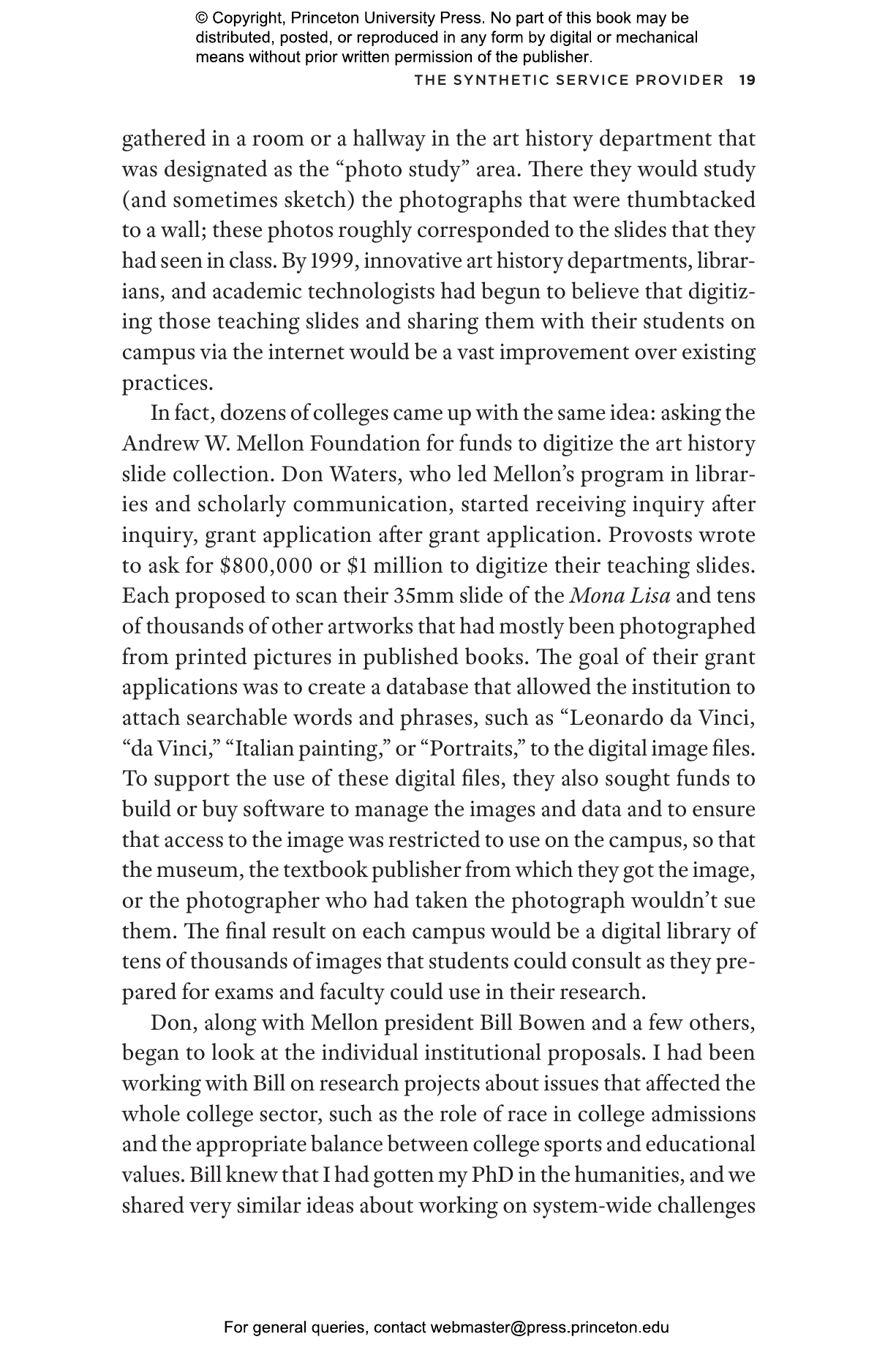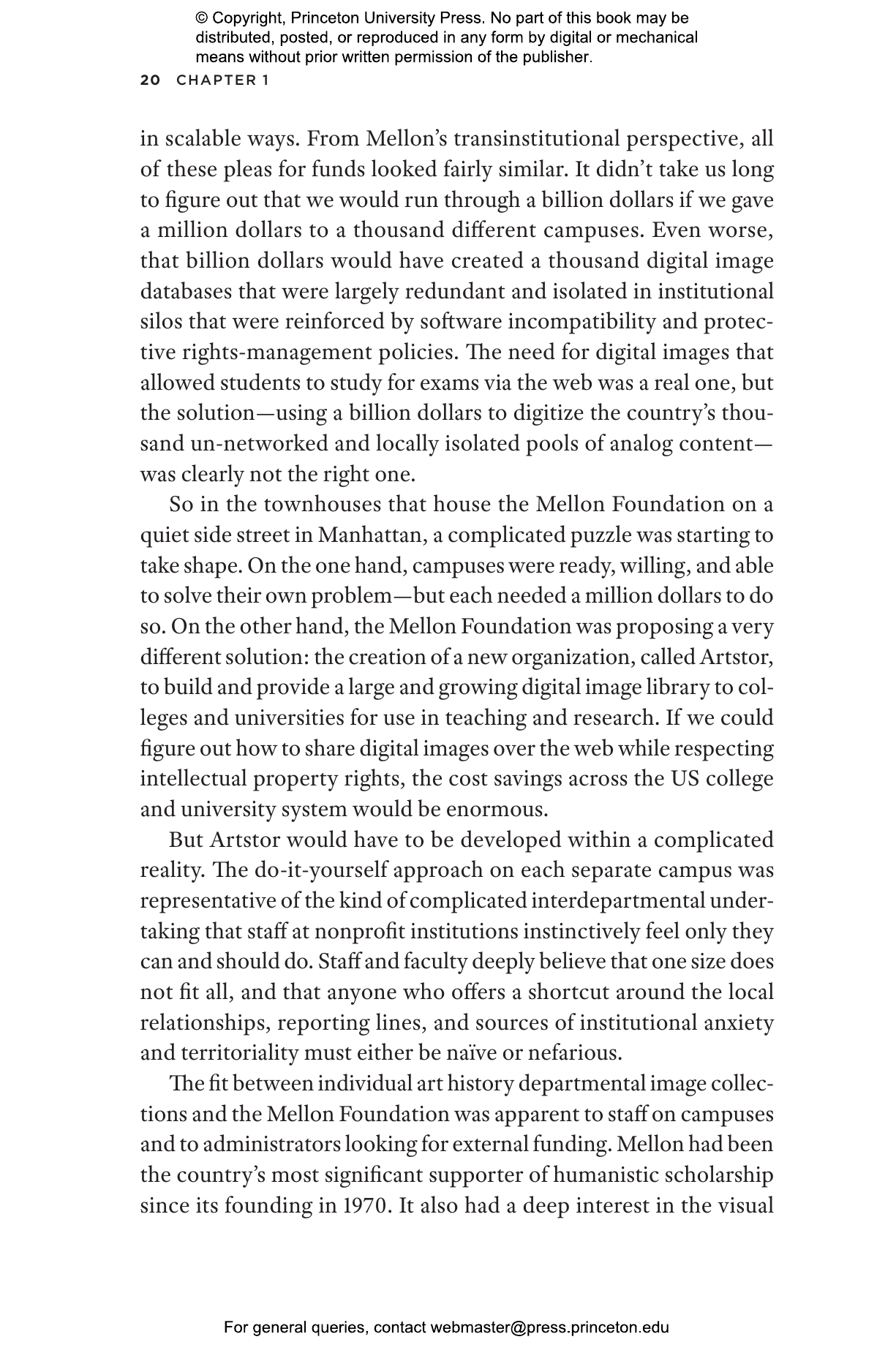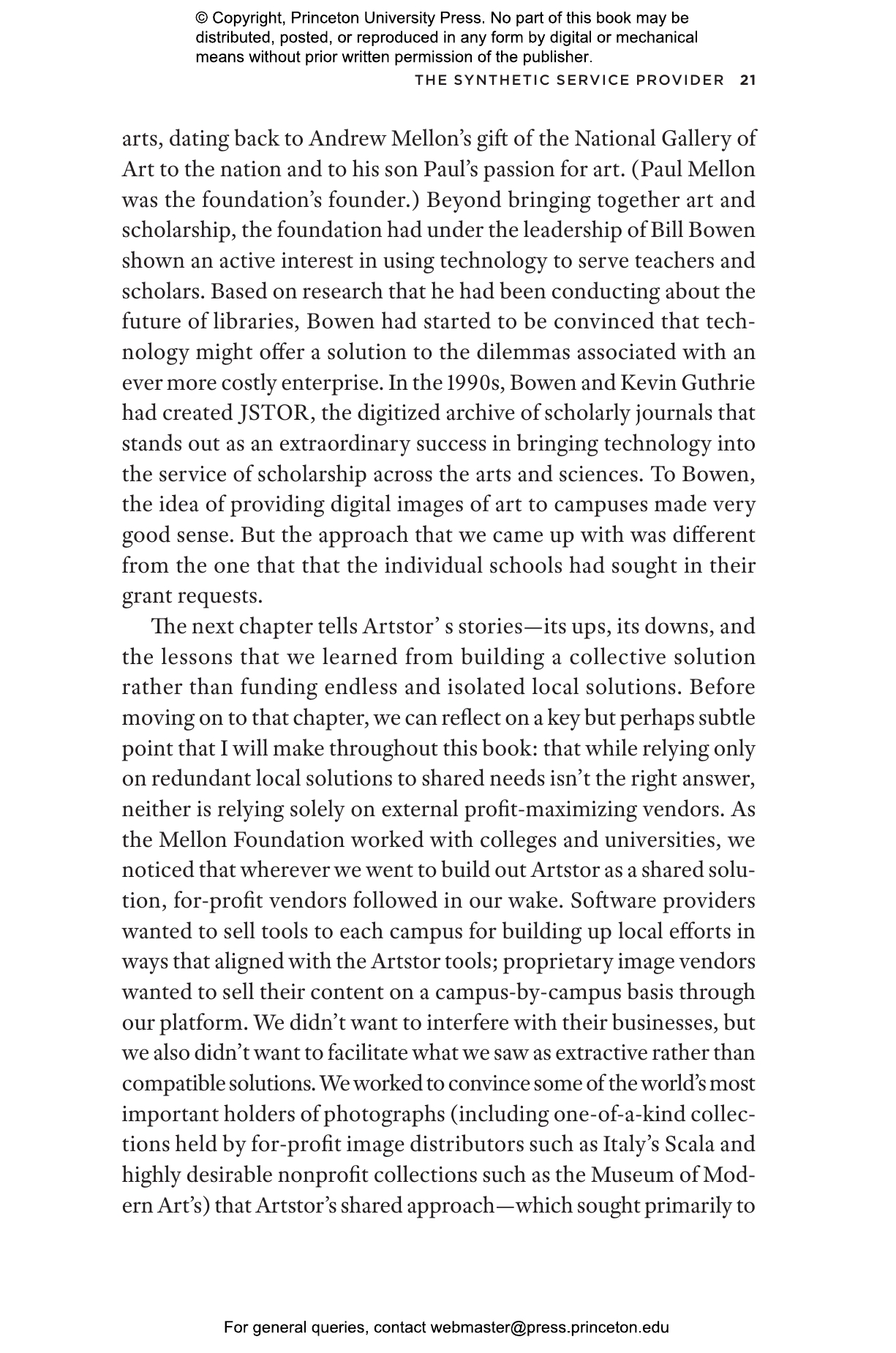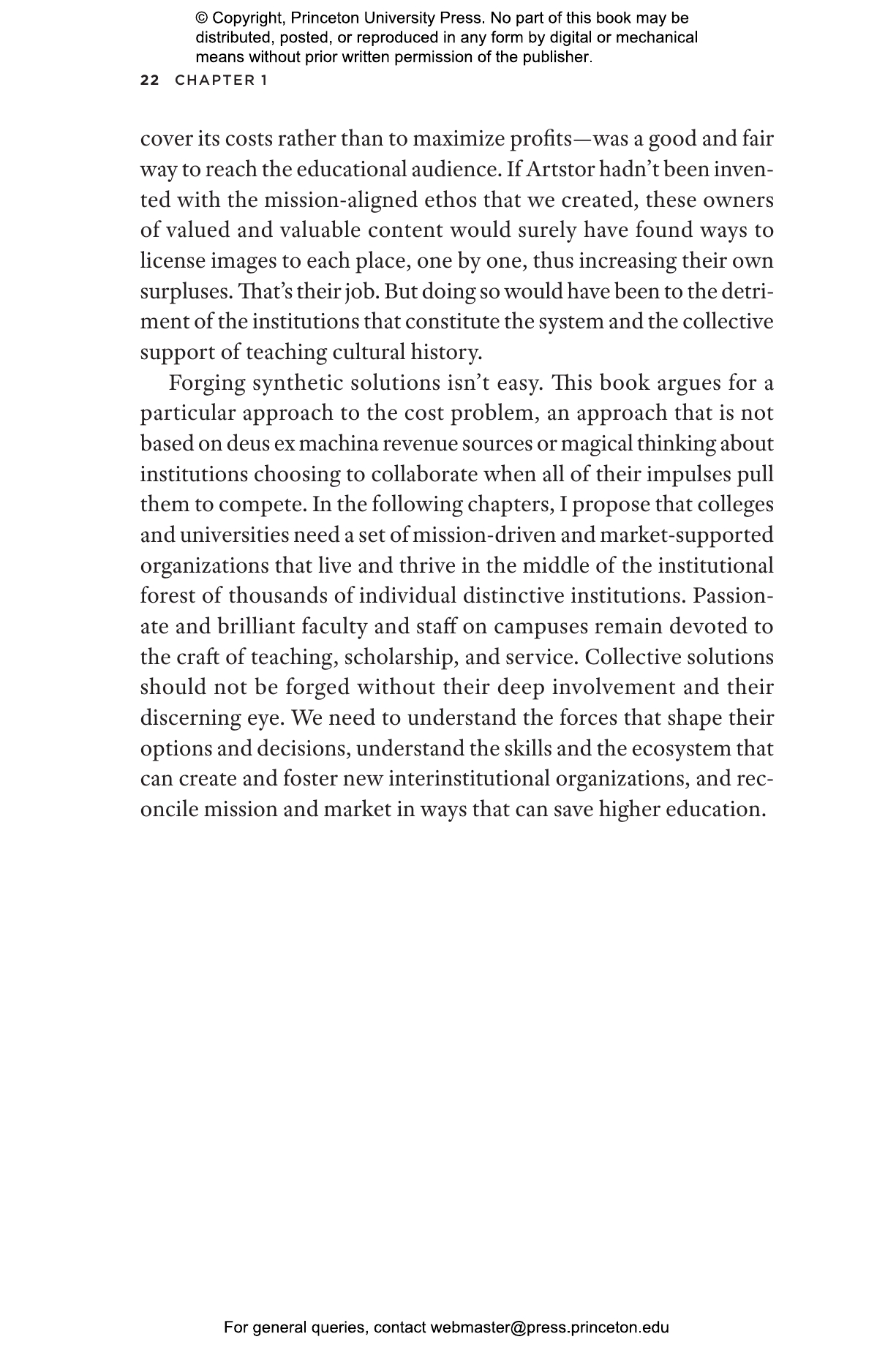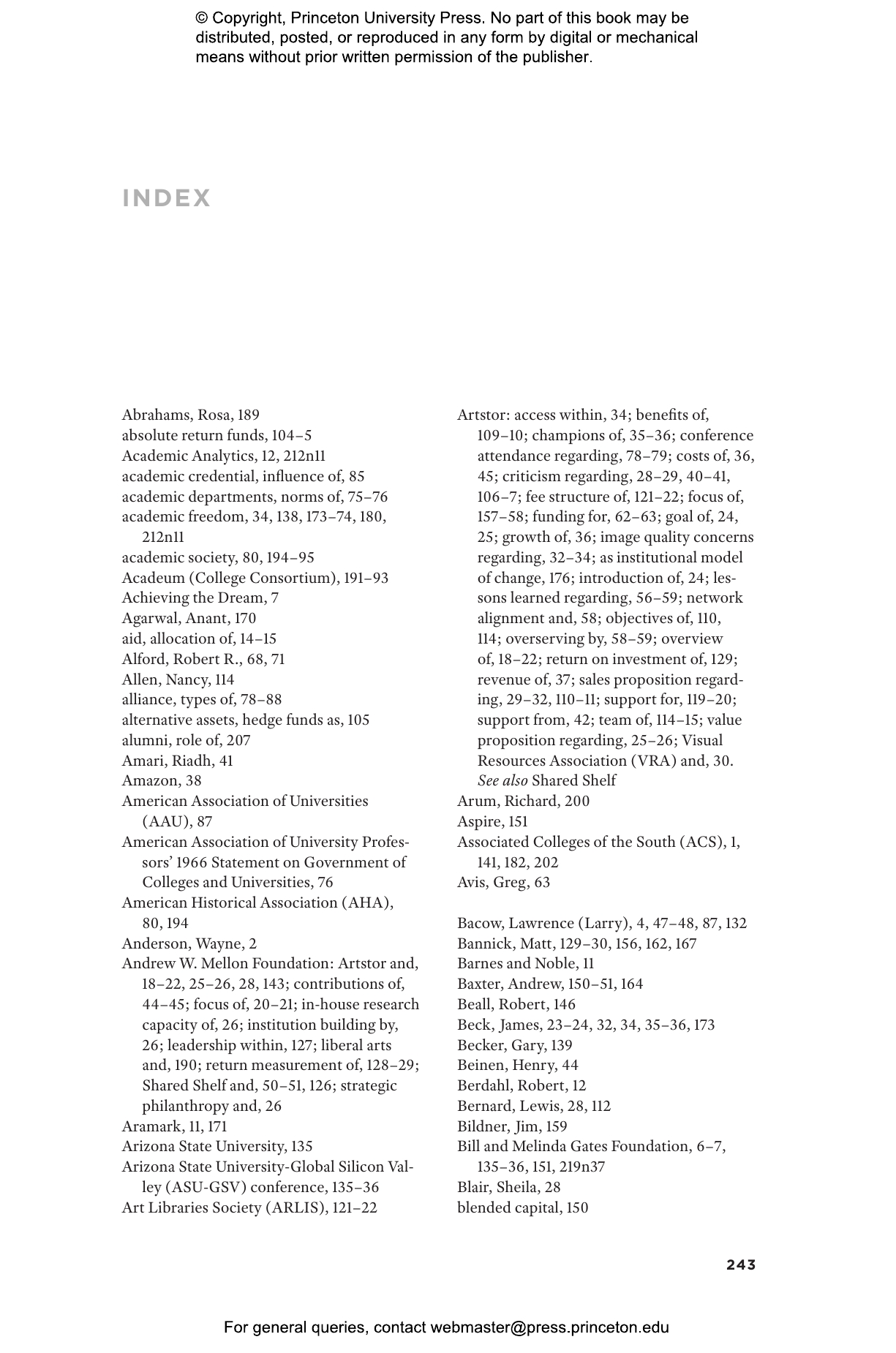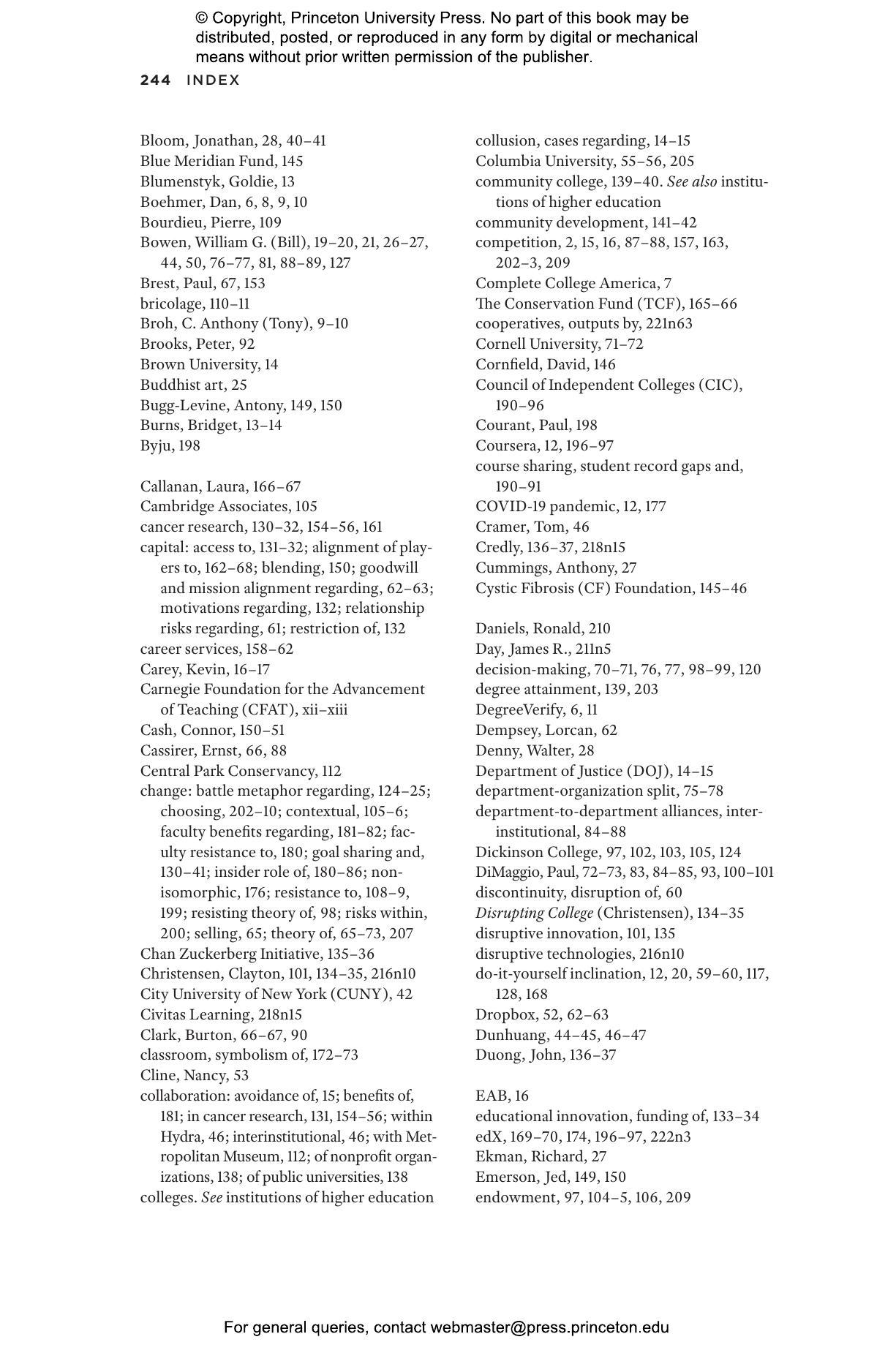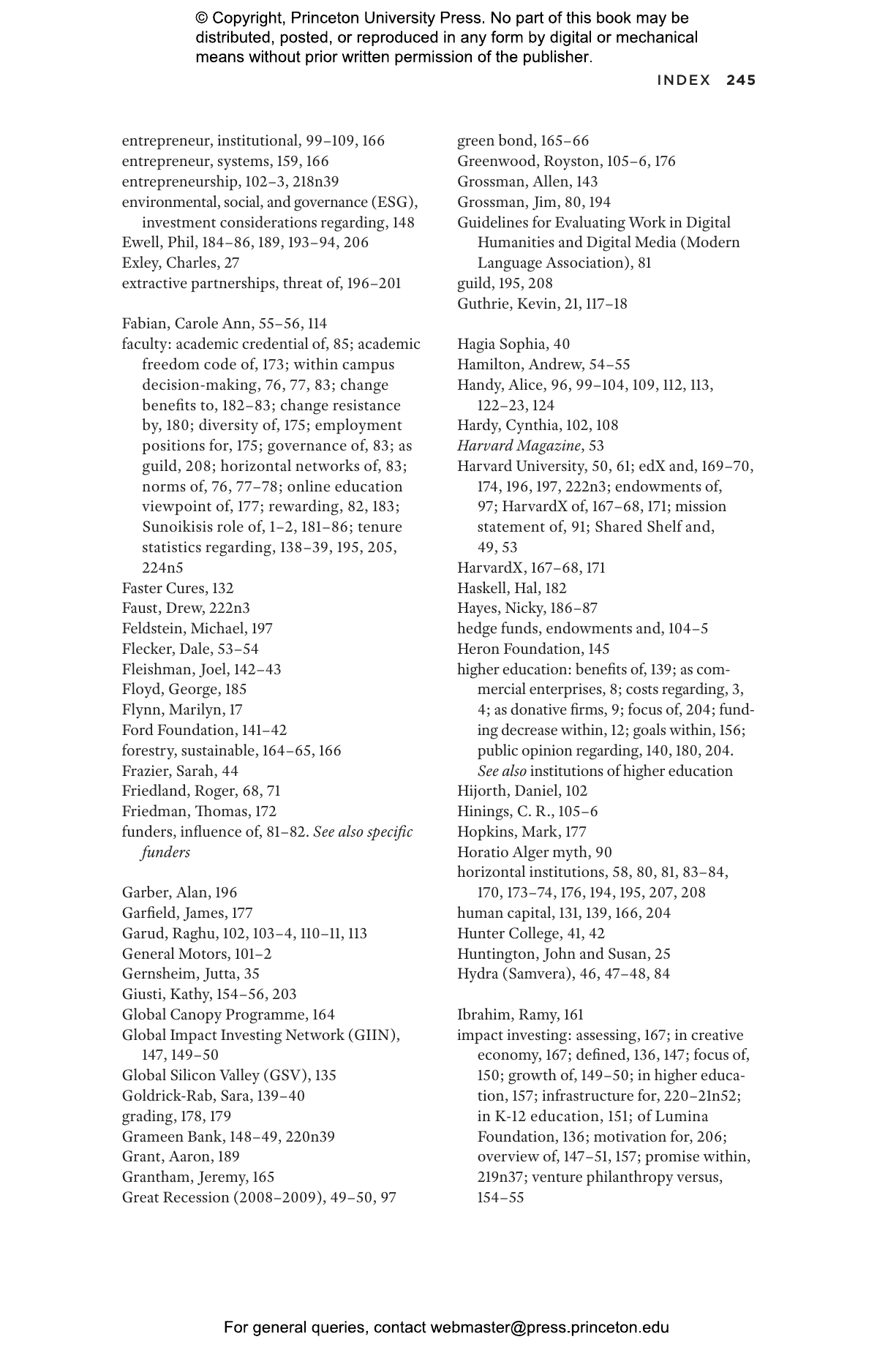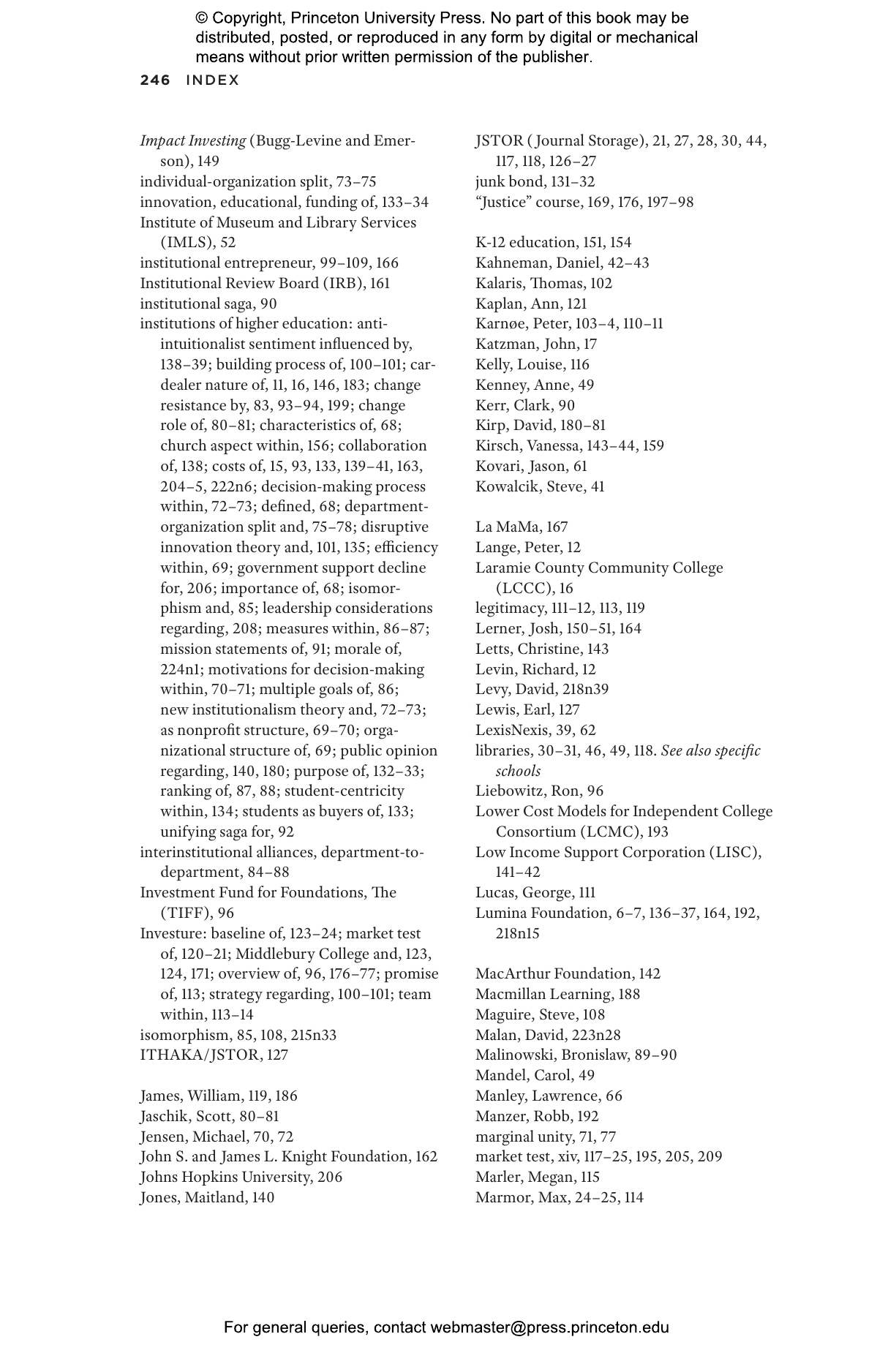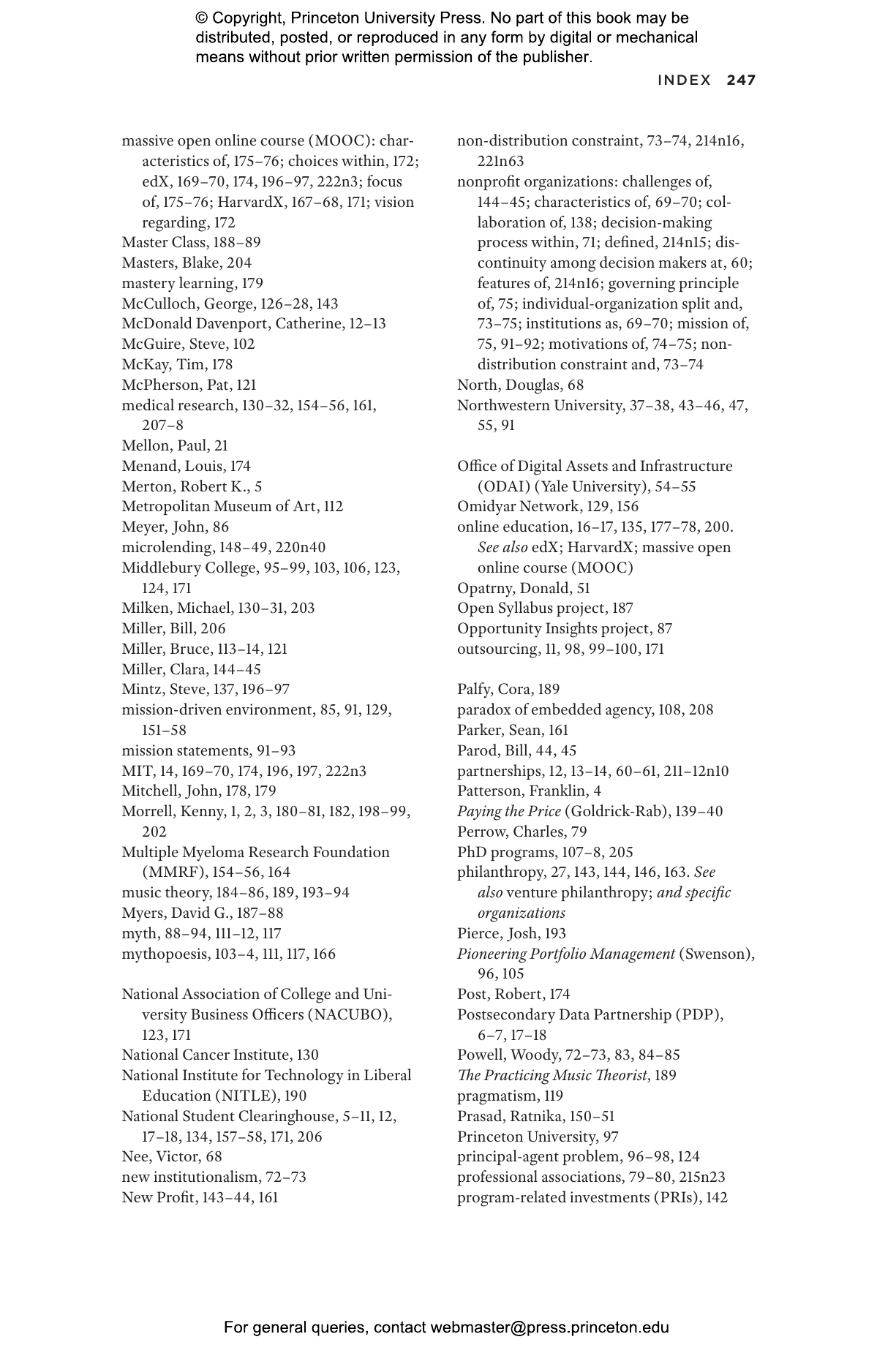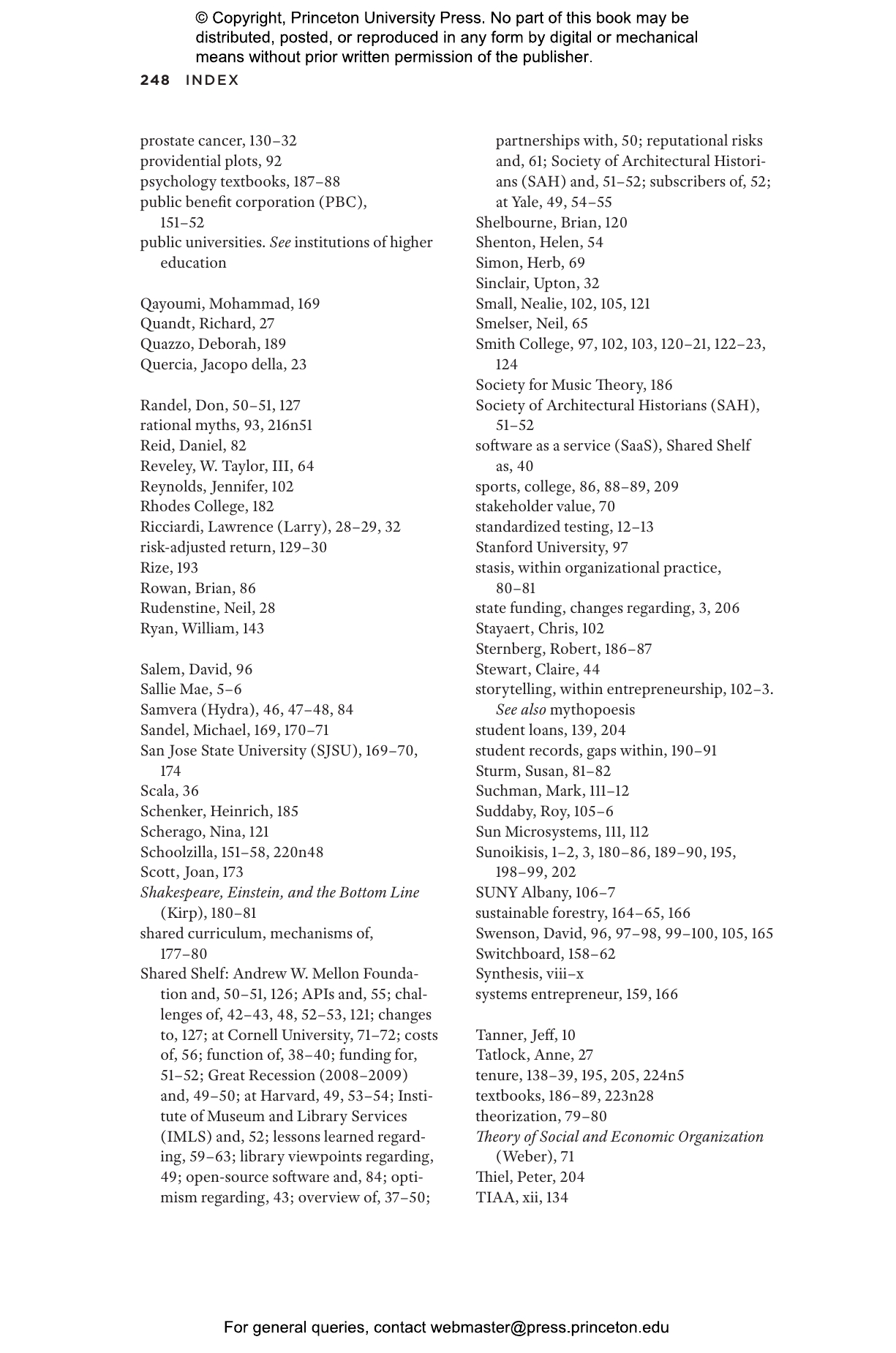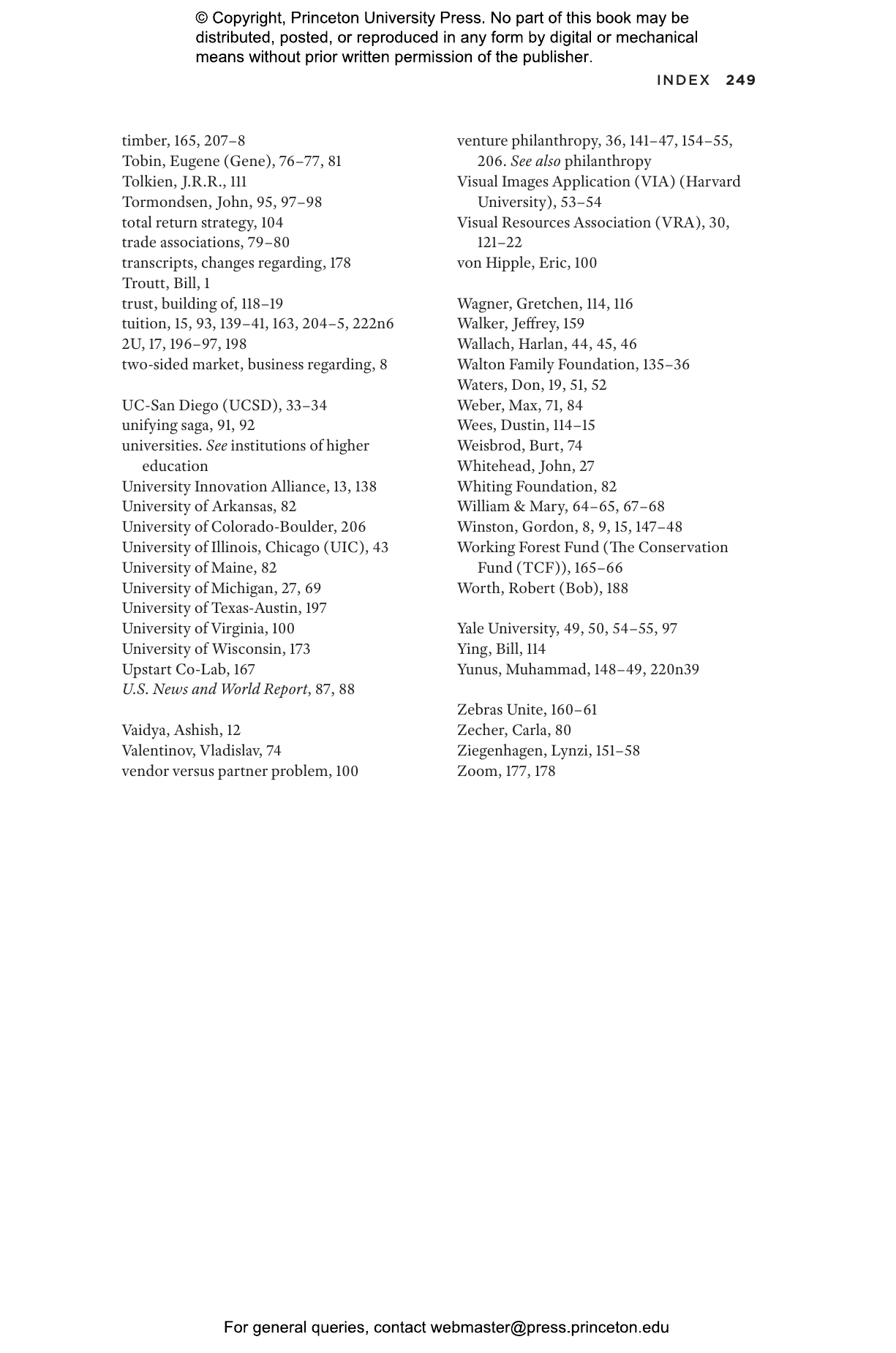US colleges and universities have long been the envy of the world. Institutional autonomy has fostered creativity among faculty, students, and staff. But this autonomy means that colleges tend to create their own solutions for every need. As a result, higher education suffers from costly redundancies that drive tuitions ever upward, putting higher education, essential to the fabric of the country, at risk. Instead of wishful thinking about collaboration or miraculous subsidies, The Synthetic University describes intermediary organizations that can provide innovative, cost-effective solutions.
Offering answers to challenges jointly faced by thousands of institutions, James Shulman lays out a compelling new vision of how to reduce spending while enabling schools to maintain their particular contributions. He explains why colleges are so resistant to change and presents illuminating case studies of mission-driven and market-supported entrepreneurial organizations—such as the student tracking infrastructure of the National Student Clearinghouse or the ambitious effort of classics professors to create a shared transinstitutional department. Mixing theory with lessons drawn from his own experience, he demonstrates how to finance and implement the organizations that can synthesize much-needed solutions.
A road map for sustained institutional change, The Synthetic University shows how to overcome colleges’ do-it-yourself impulses, avoid the threat of disruption, and preserve the institutions that we need to conduct basic research, foster innovation, and prepare diverse students to lead meaningful and productive lives.
Awards and Recognition
- A Forbes Best Higher Education Book
"Shulman offers excellent insights into why change is so difficult at universities and describes how they can succeed—or fail—at their work."—Michael Nietzel, Forbes
"In [this] important forthcoming book, James Shulman of the American Council of Learned Societies and the mastermind behind ARTSTOR shows how cross-institutional collaboration and shared services can bend the cost curve, improve outcomes and make higher education more equitable."—Steven Mintz, Inside Higher Ed
"Shulman’s book is called The Synthetic University: 'synthetic' not meaning, of course, fake, but, rather, a place of synthesis. And it is these horizontal associations that bring faculty together from different universities that he points to as a prime example of synthesis that enriches all members of the academic ecosphere."—Nathan M. Greenfield, University World News
"In a detailed, thoughtful and wide-ranging analysis, Shulman lays out the challenges to inter-institutional cooperation and suggests ways to overcome them."—Glenn C. Altschuler and David Wippmann, Inside Higher Ed
"Shulman offers a host of fresh ideas, which, if implemented, could propel the higher education sector forward."—Choice
“Shulman brings a sociologist’s lens, an entrepreneur’s spirit, and a wealth of practical wisdom to the formidable task of transforming higher education. He shows how to create market-driven intermediaries that connect and support an otherwise fragmented landscape of mission-driven universities. Theoretically rich with fascinating case studies, The Synthetic University is essential reading for university leaders, educational entrepreneurs, and philanthropists.”—Rob Reich, Stanford University, author of Just Giving: Why Philanthropy Is Failing Democracy and How It Can Do Better
“Drawing on his leadership of some of the most innovative entrepreneurial institutions, James Shulman offers invaluable lessons in addressing the balance between the forces of the market and the traditional understanding of higher education as a public good.”—Jack DeGioia, president of Georgetown University
“Under attack, under pressure, and underappreciated, higher education is at an inflection point. A long-standing observer and steward of scholarly organizations, James Shulman posits a bold way forward that preserves the distinctiveness of universities’ missions while heightening cooperation among them in order to scale collective impact and expand access to research and learning.”—Alondra Nelson, Harold F. Linder Professor, Institute for Advanced Study
“This book offers deep, original thinking about how universities can innovate and survive. James Shulman has pragmatic, hard-won wisdom about how to build innovative organizations that can navigate past the complexities of educational institutions to drive meaningful change.”—Matt Greenfield, managing partner at Rethink Education
“James Shulman’s book is a page-turning lesson in the history, psychology, and incentives that have created today’s higher education system. It is also a road map for how the higher education system can drive up student success and drive down costs with the help of well-managed, well-designed, mission-driven businesses that find their way to capital from the growing impact investing sector. The road won’t be easy, but with shared agreement on destination and a greater capacity for collective action, this book gives hope that we can get there.”—Roy Swan, director of Mission Investments at the Ford Foundation
